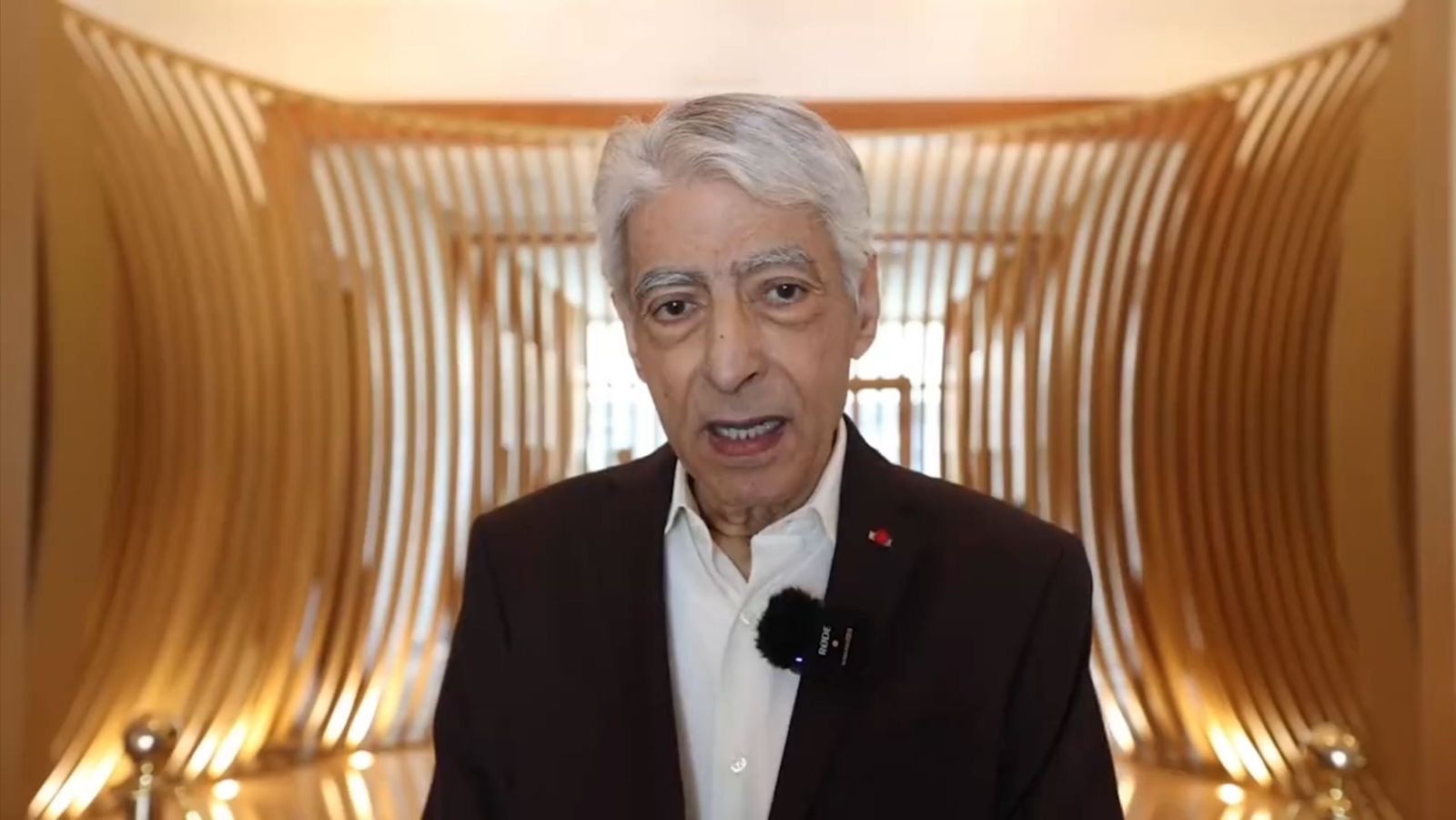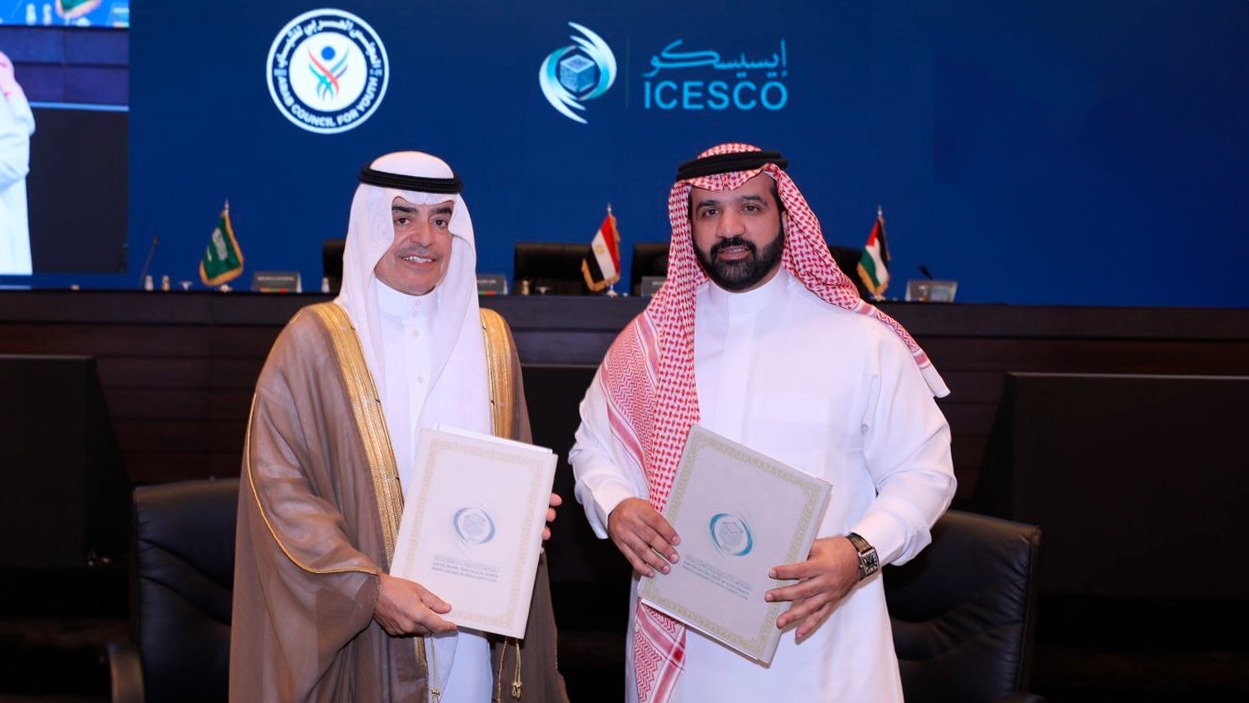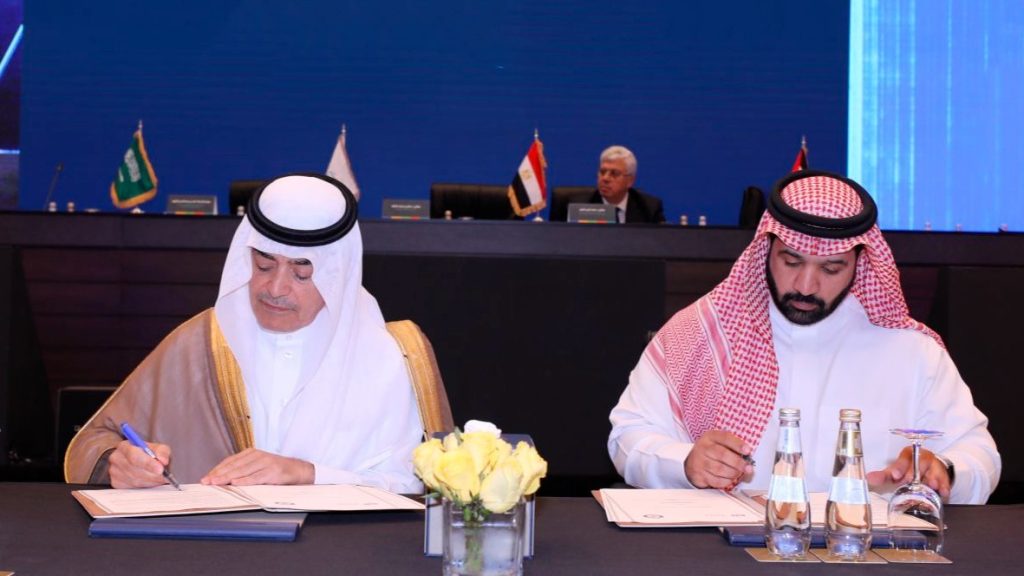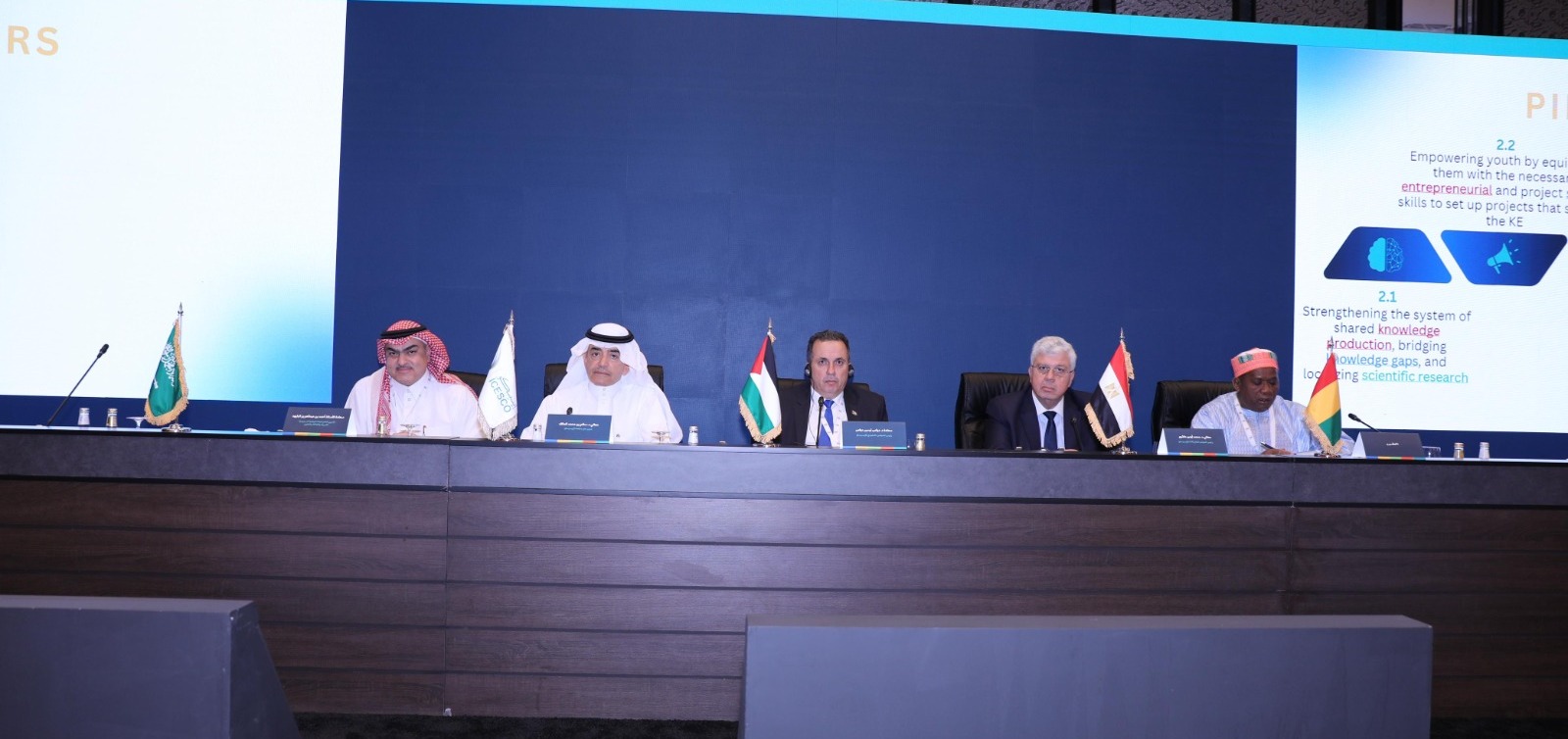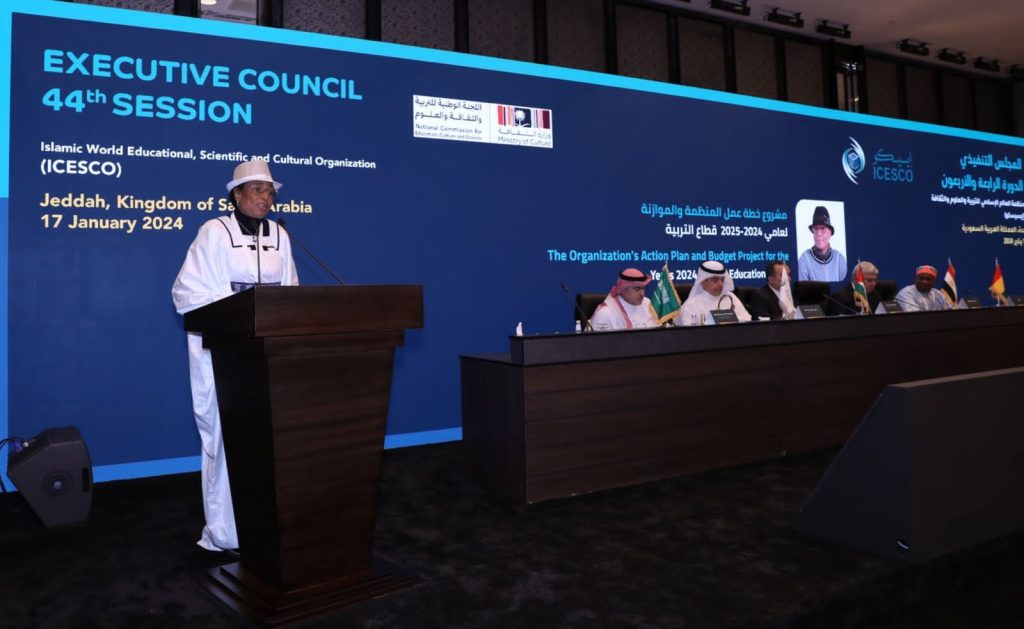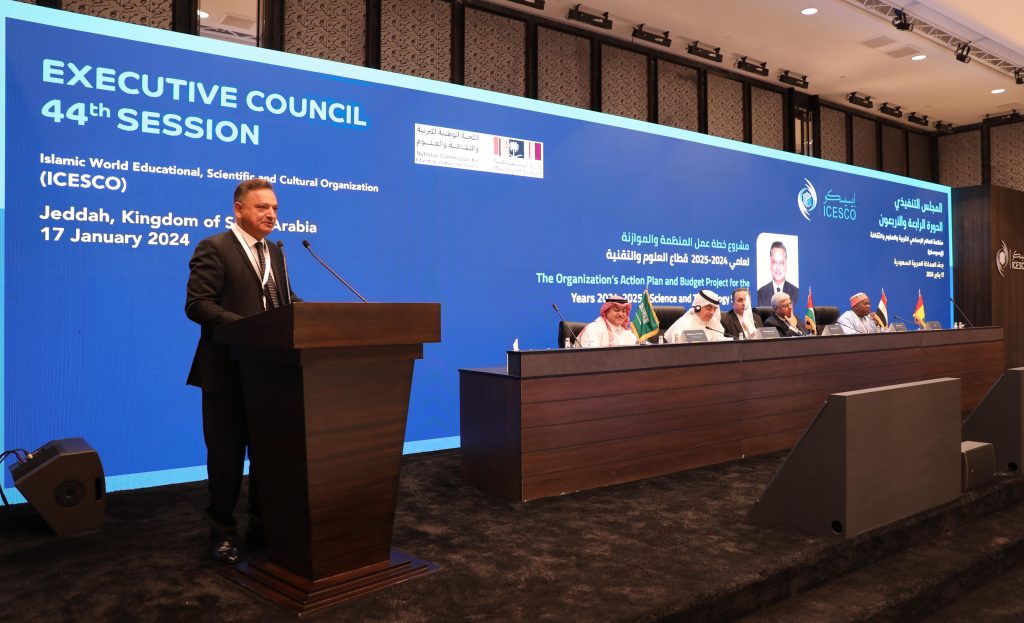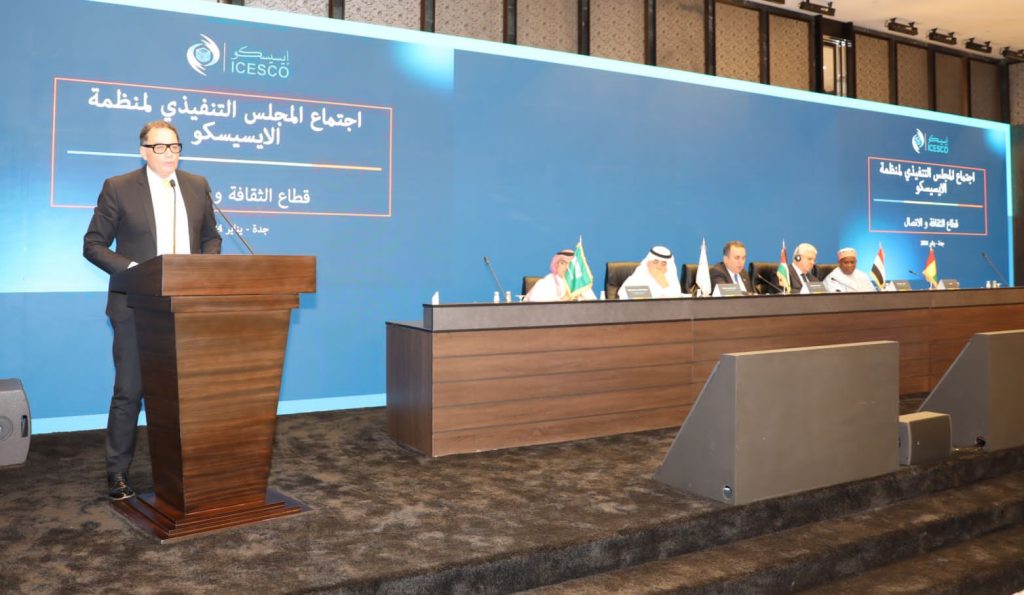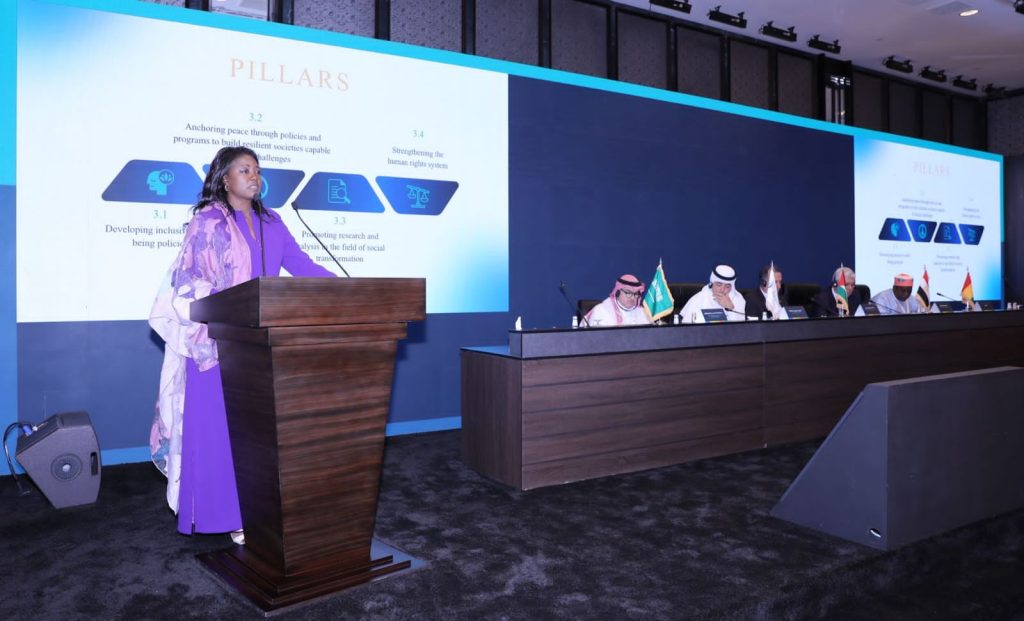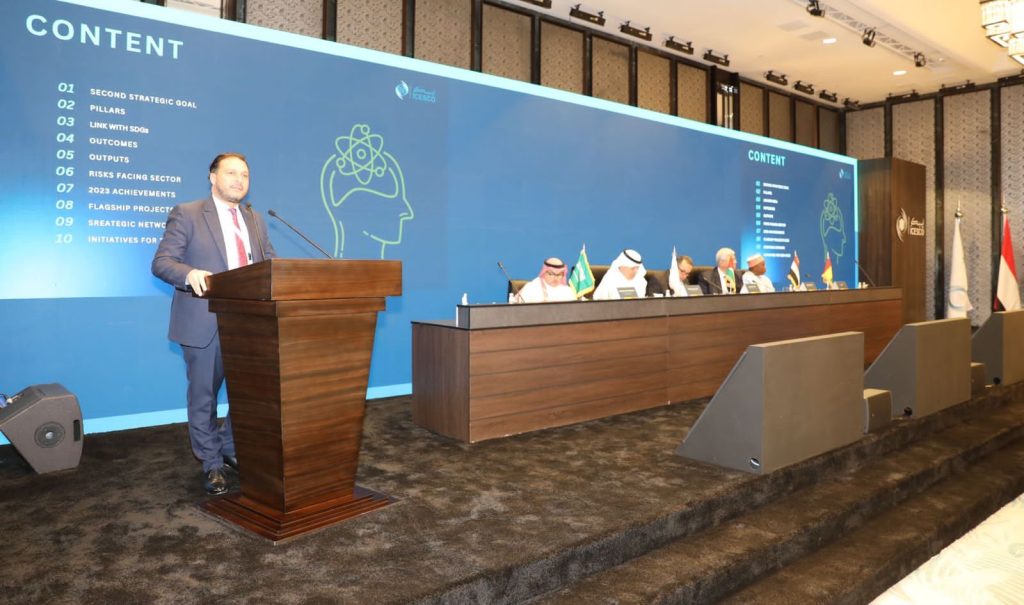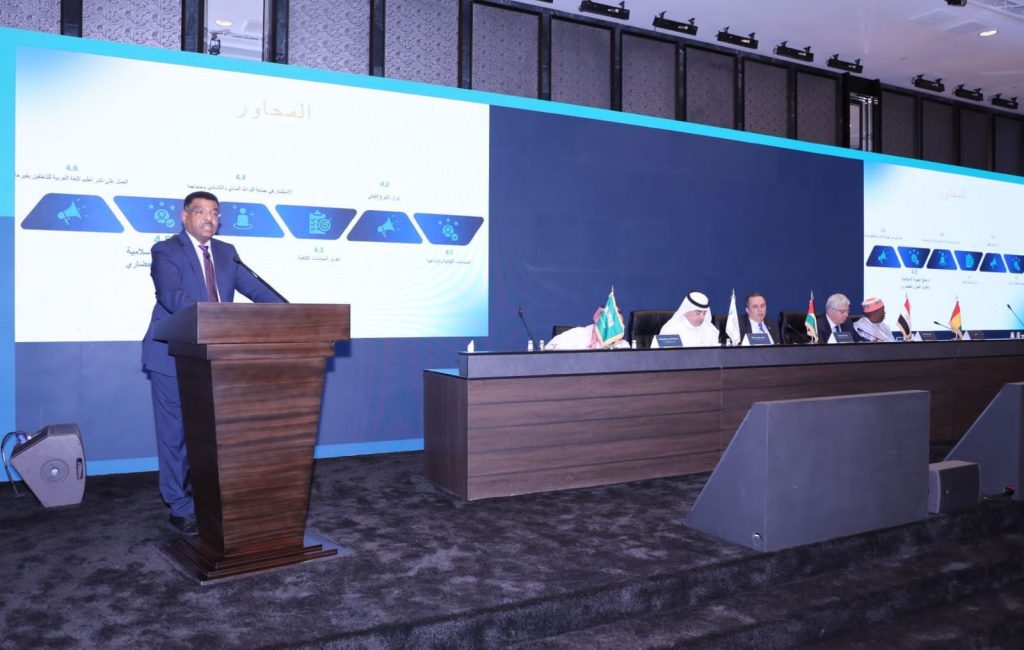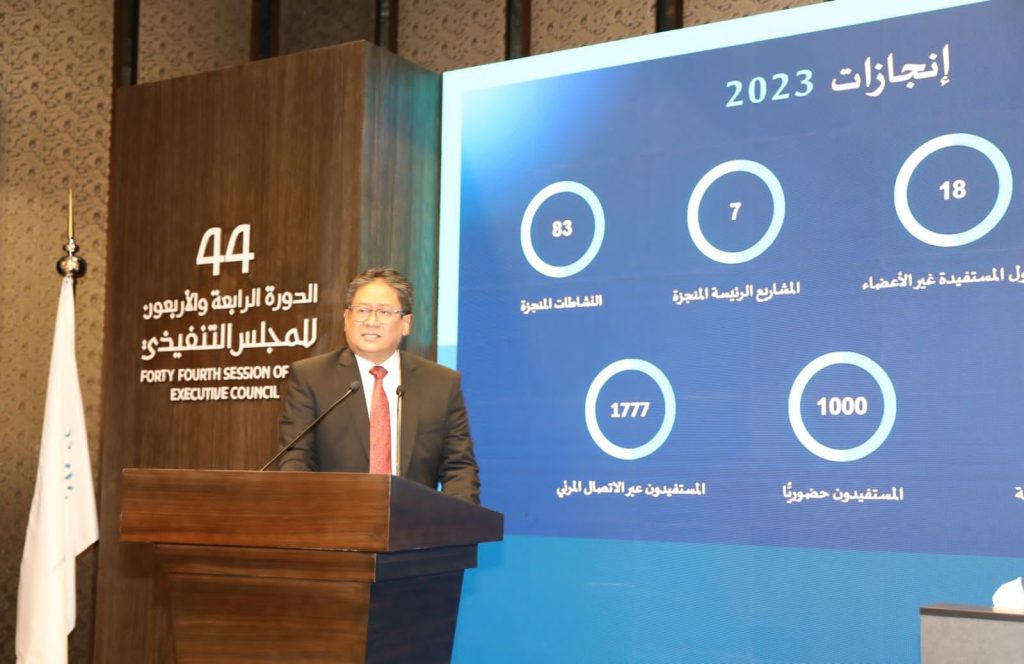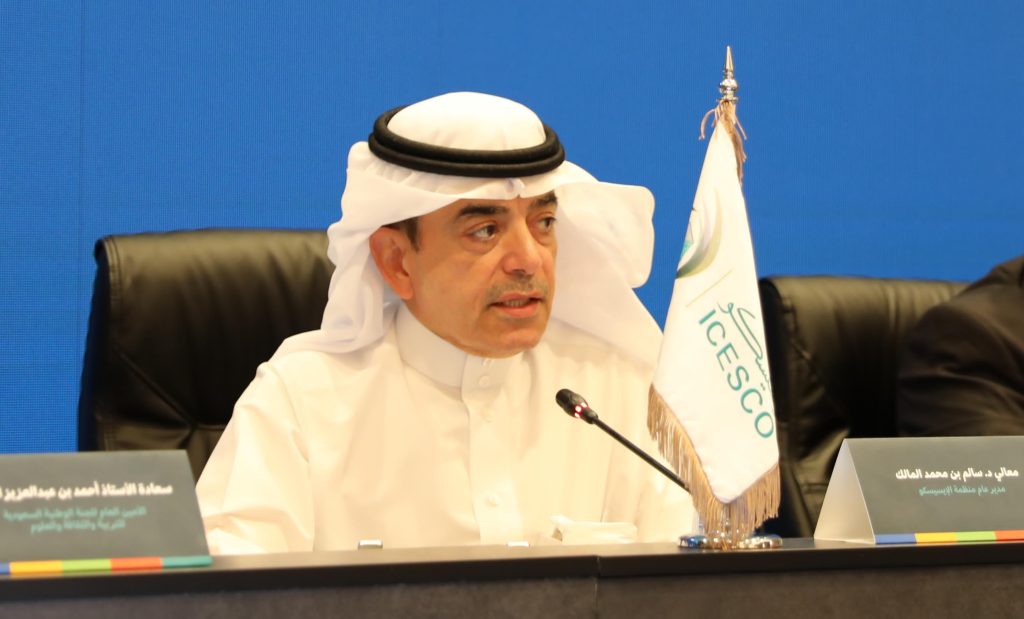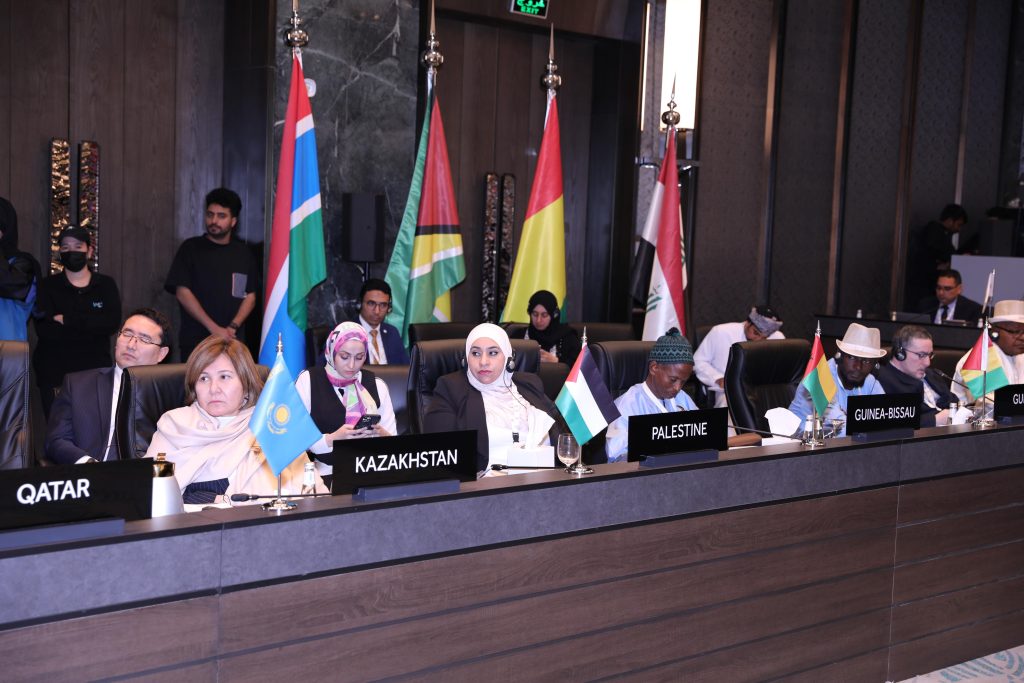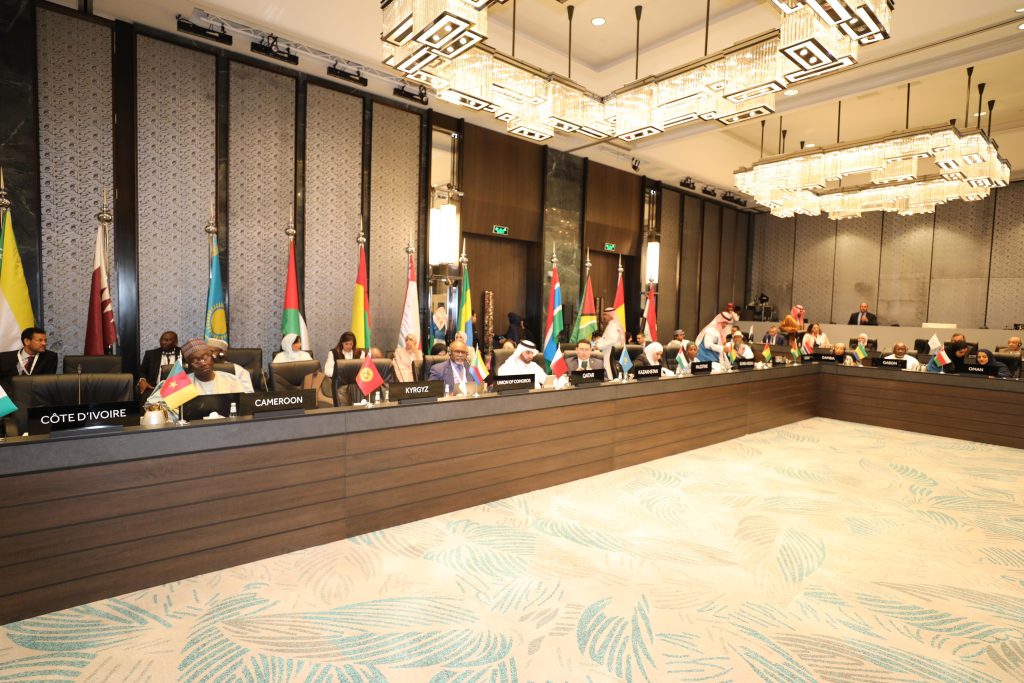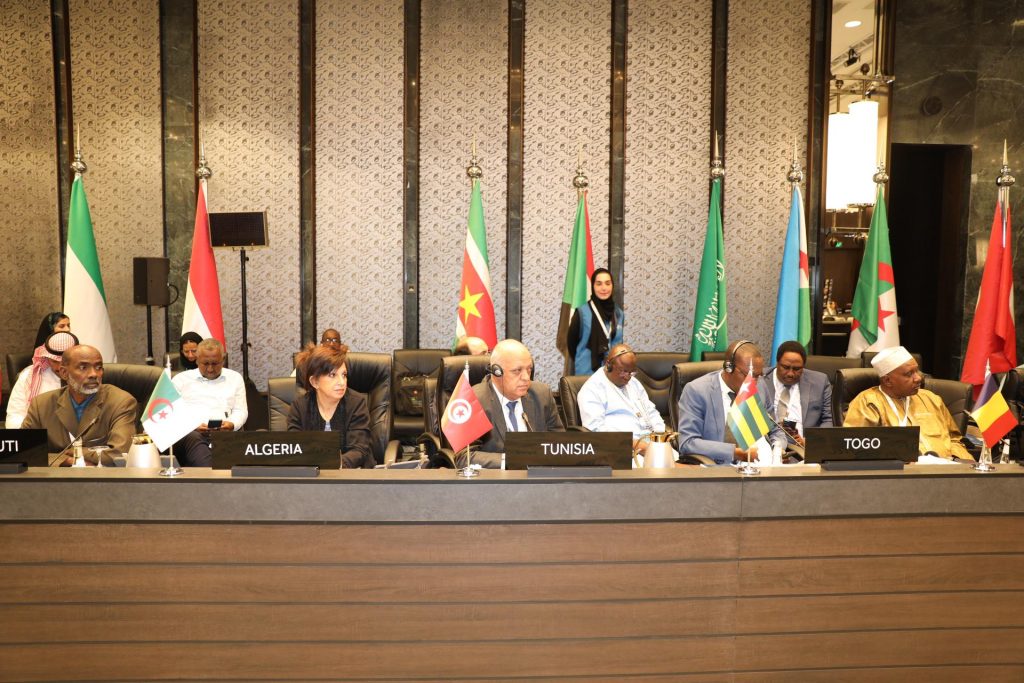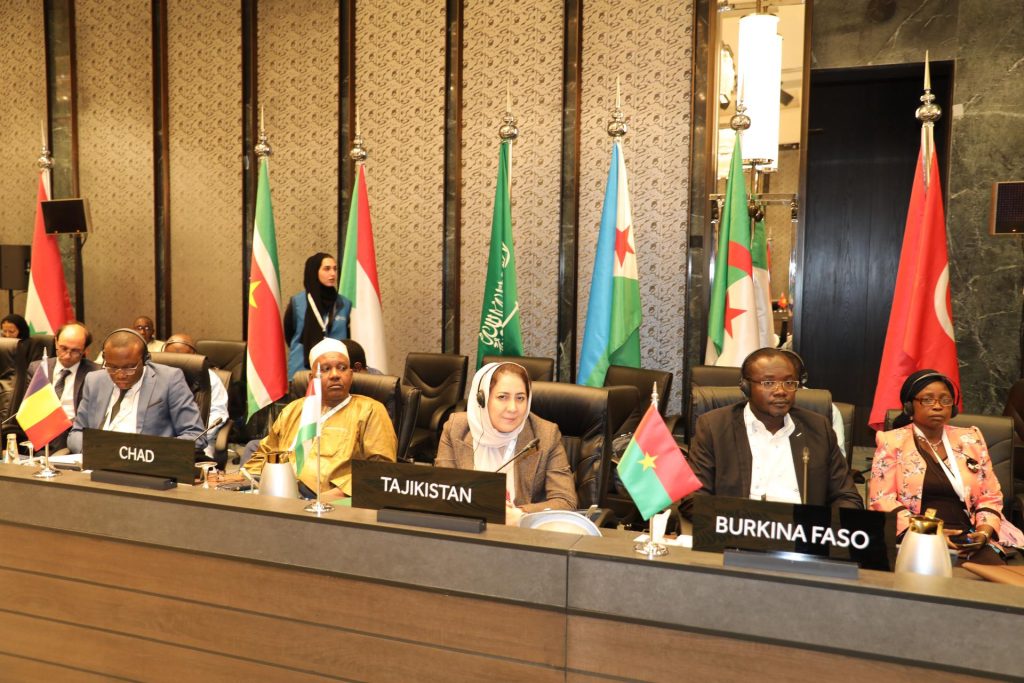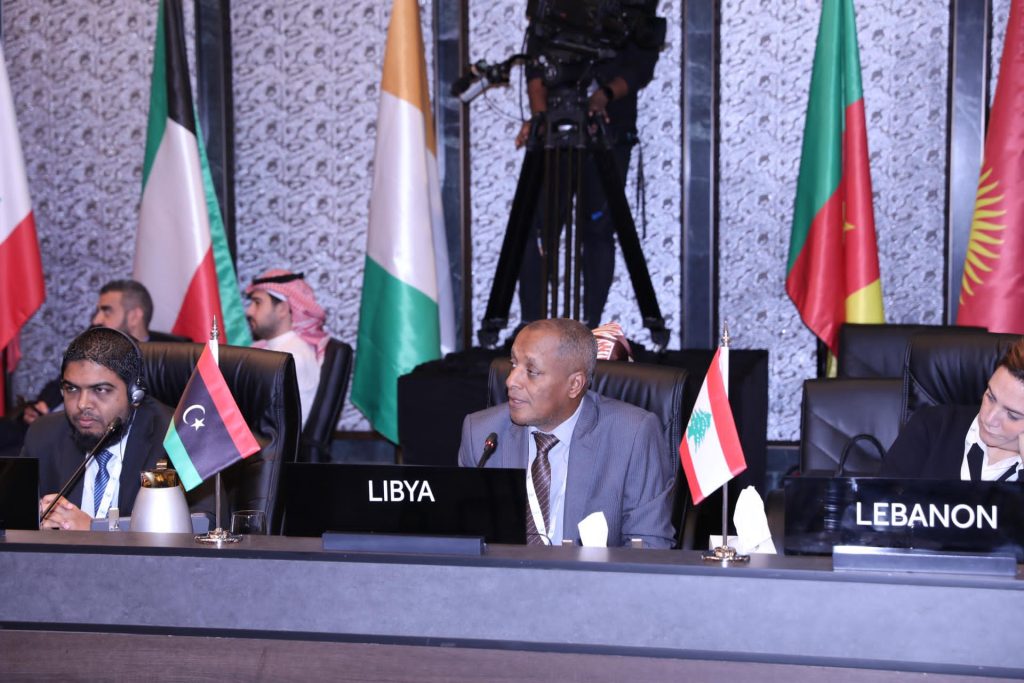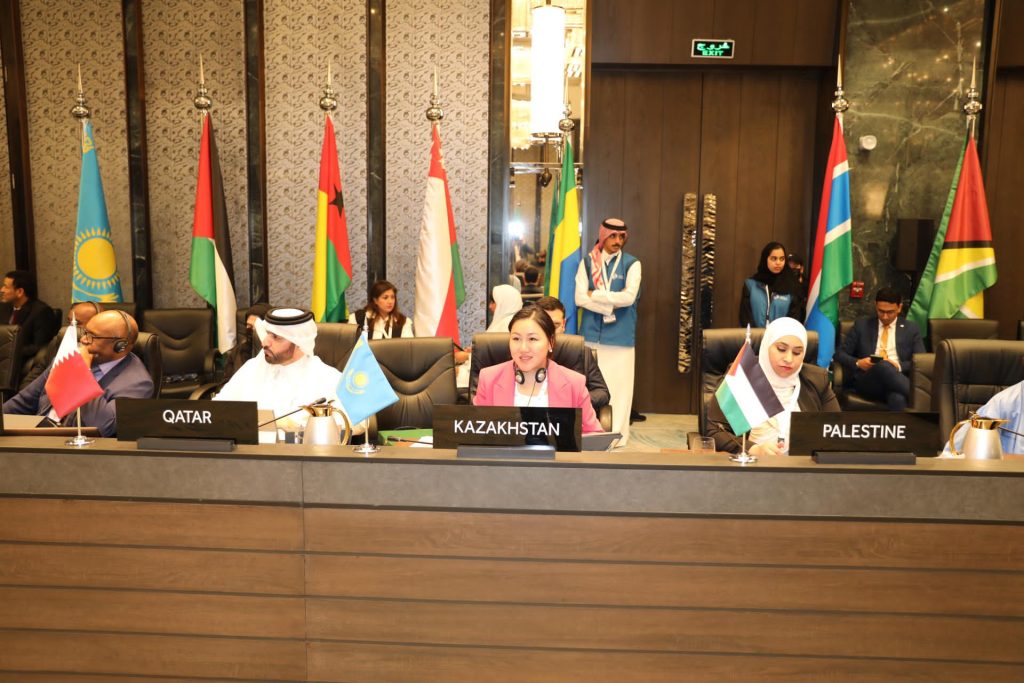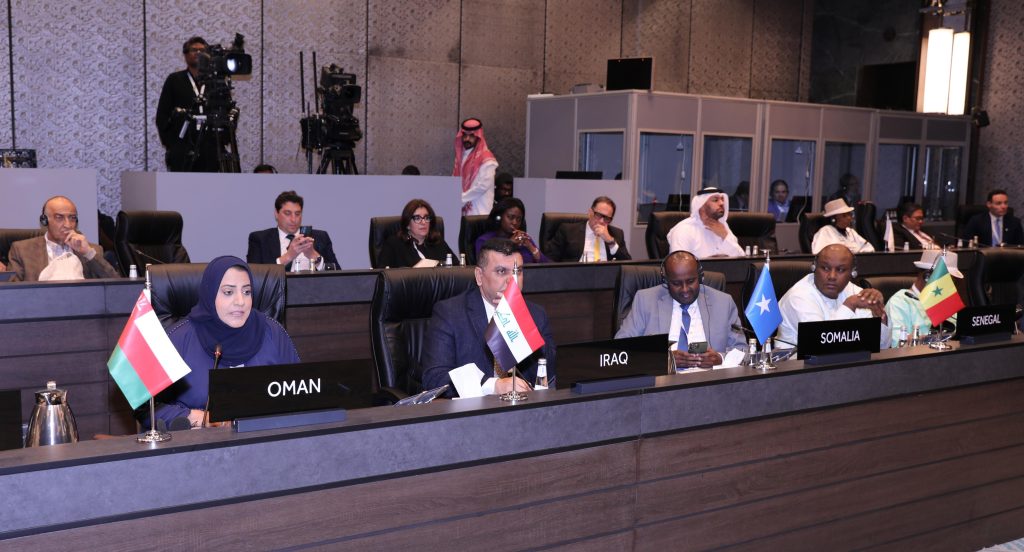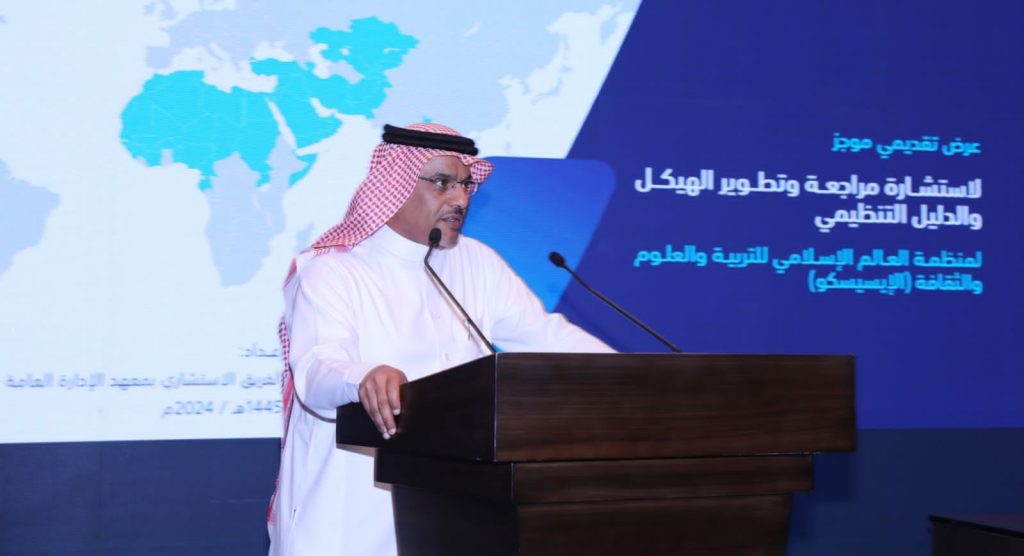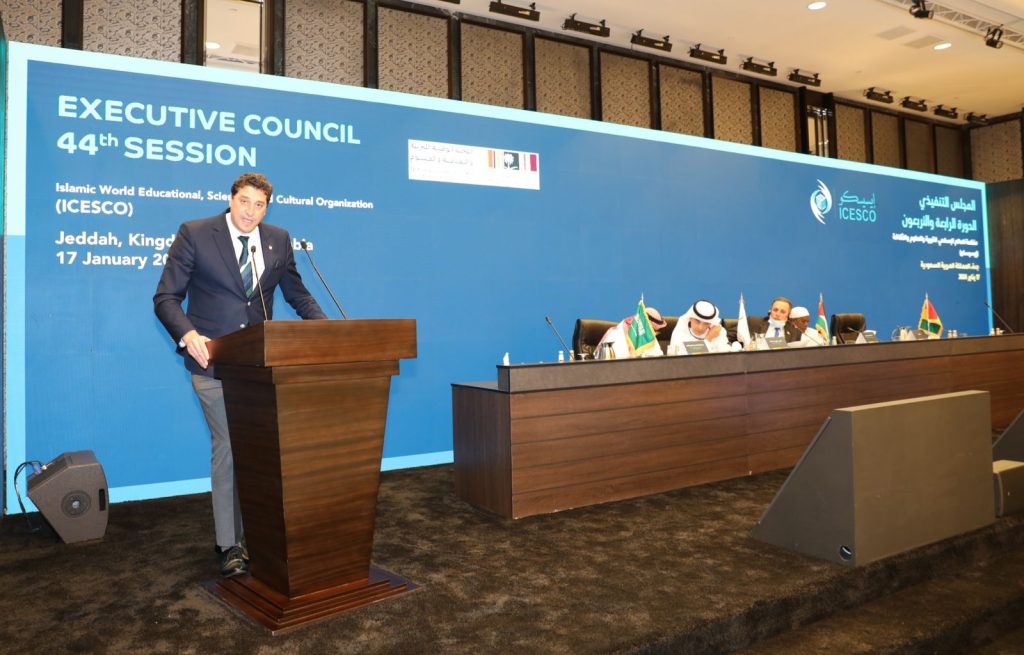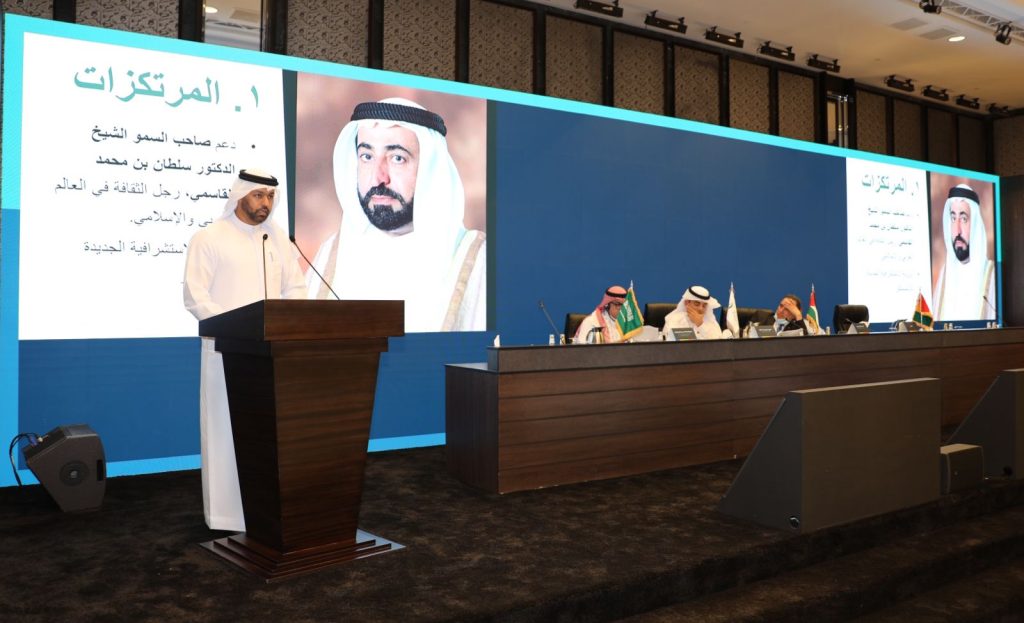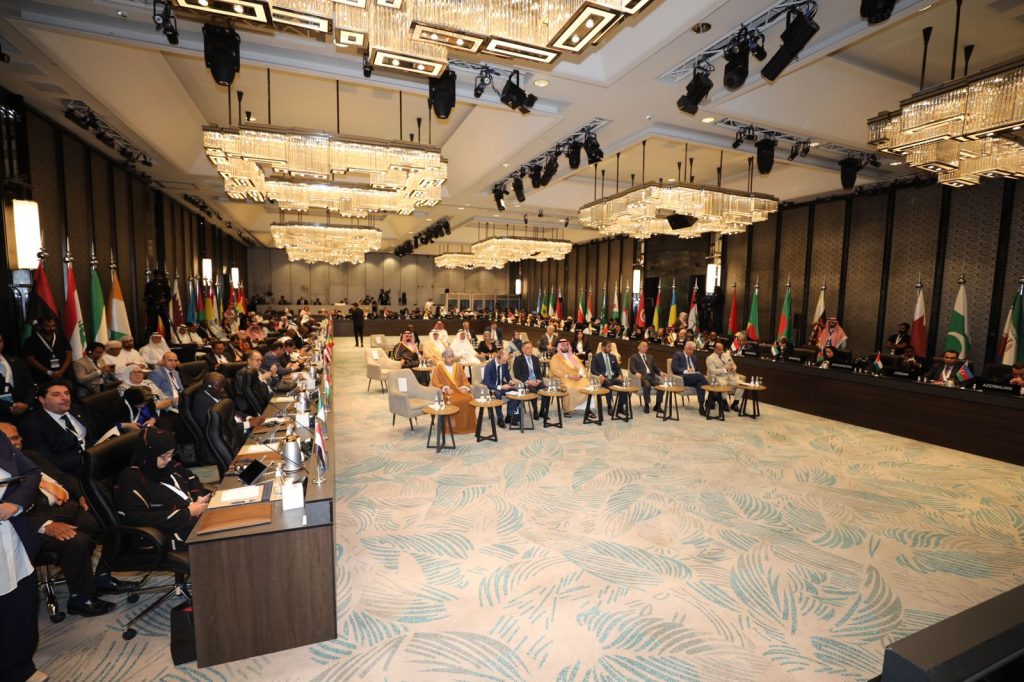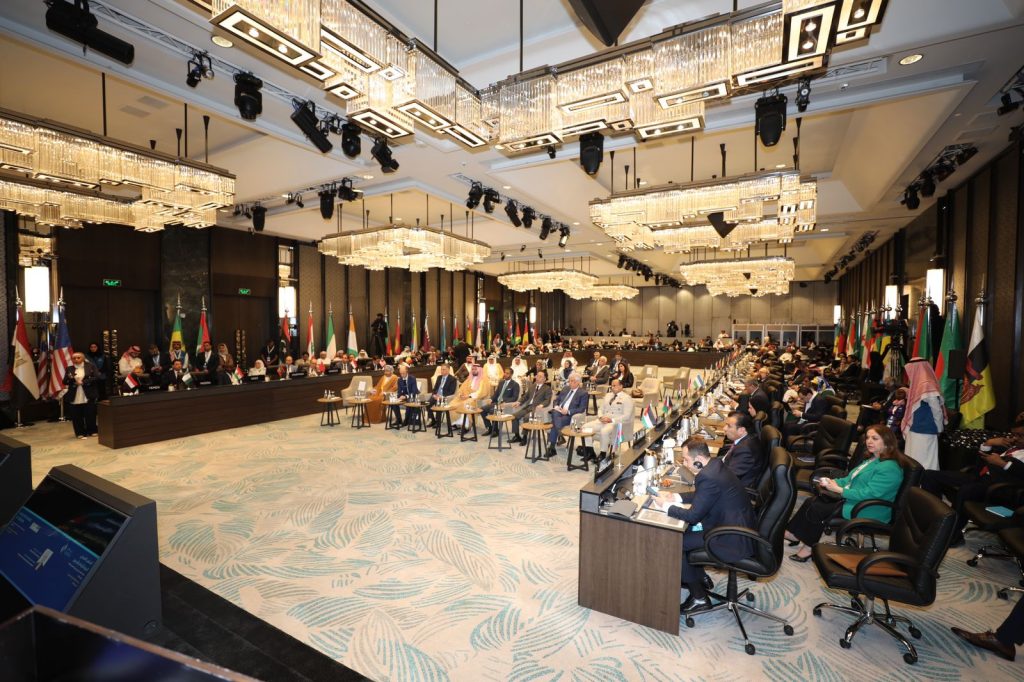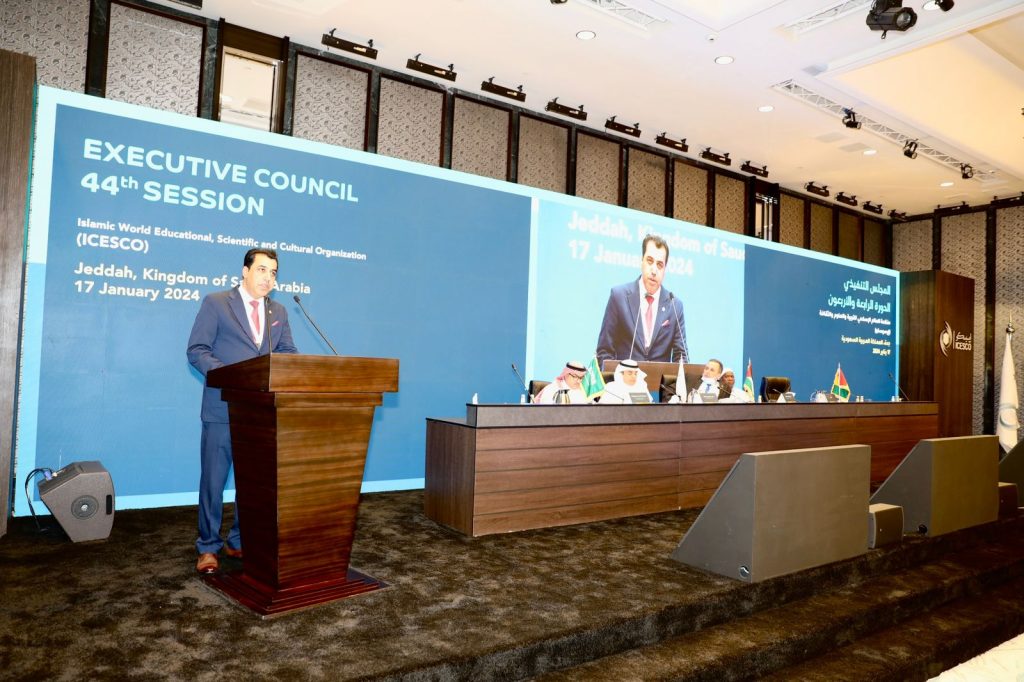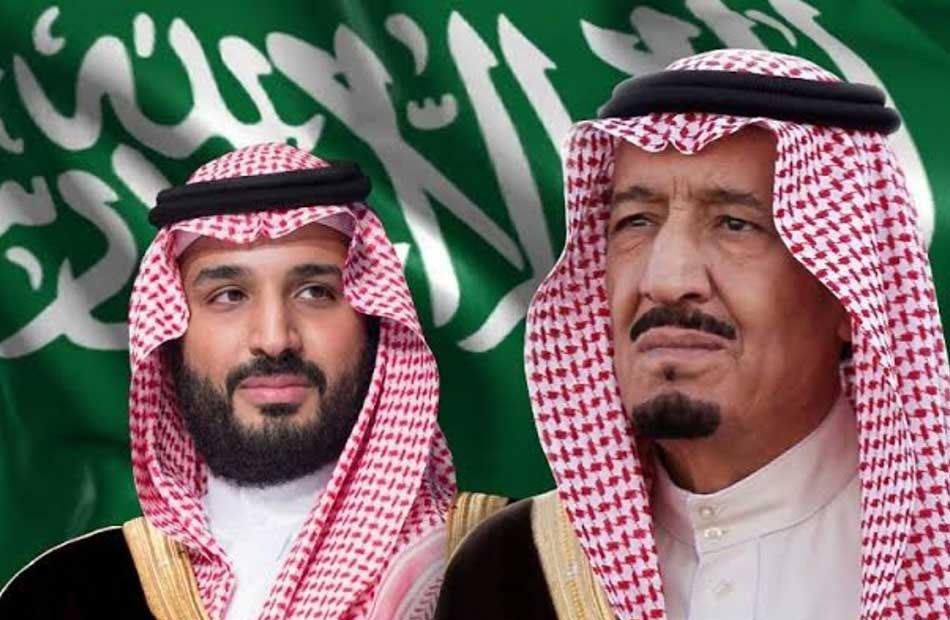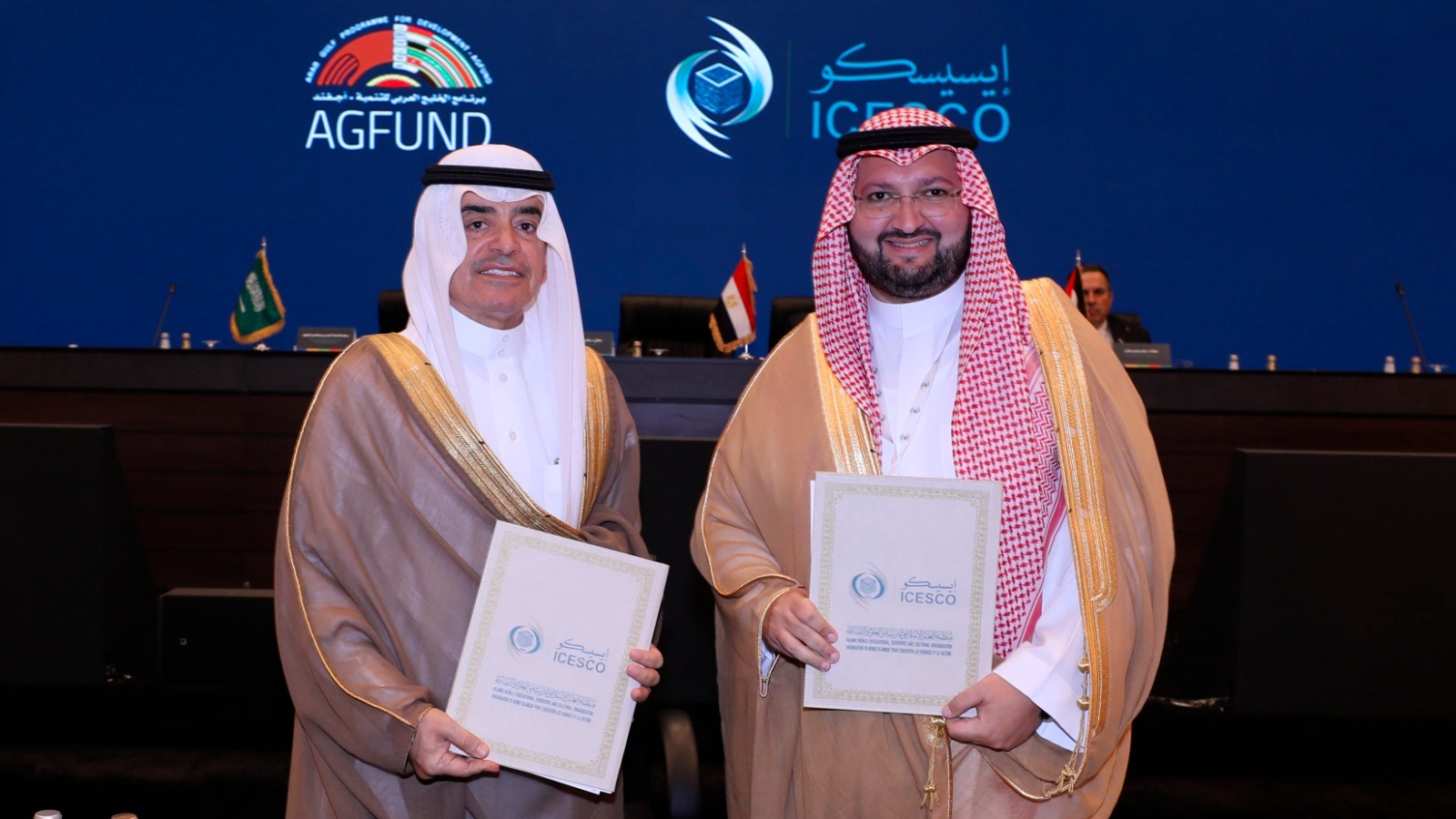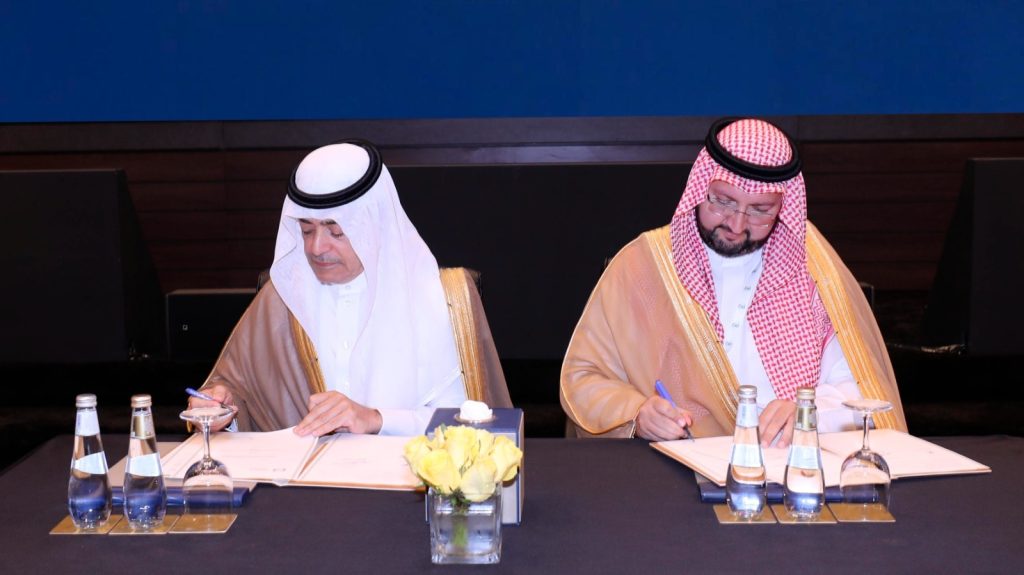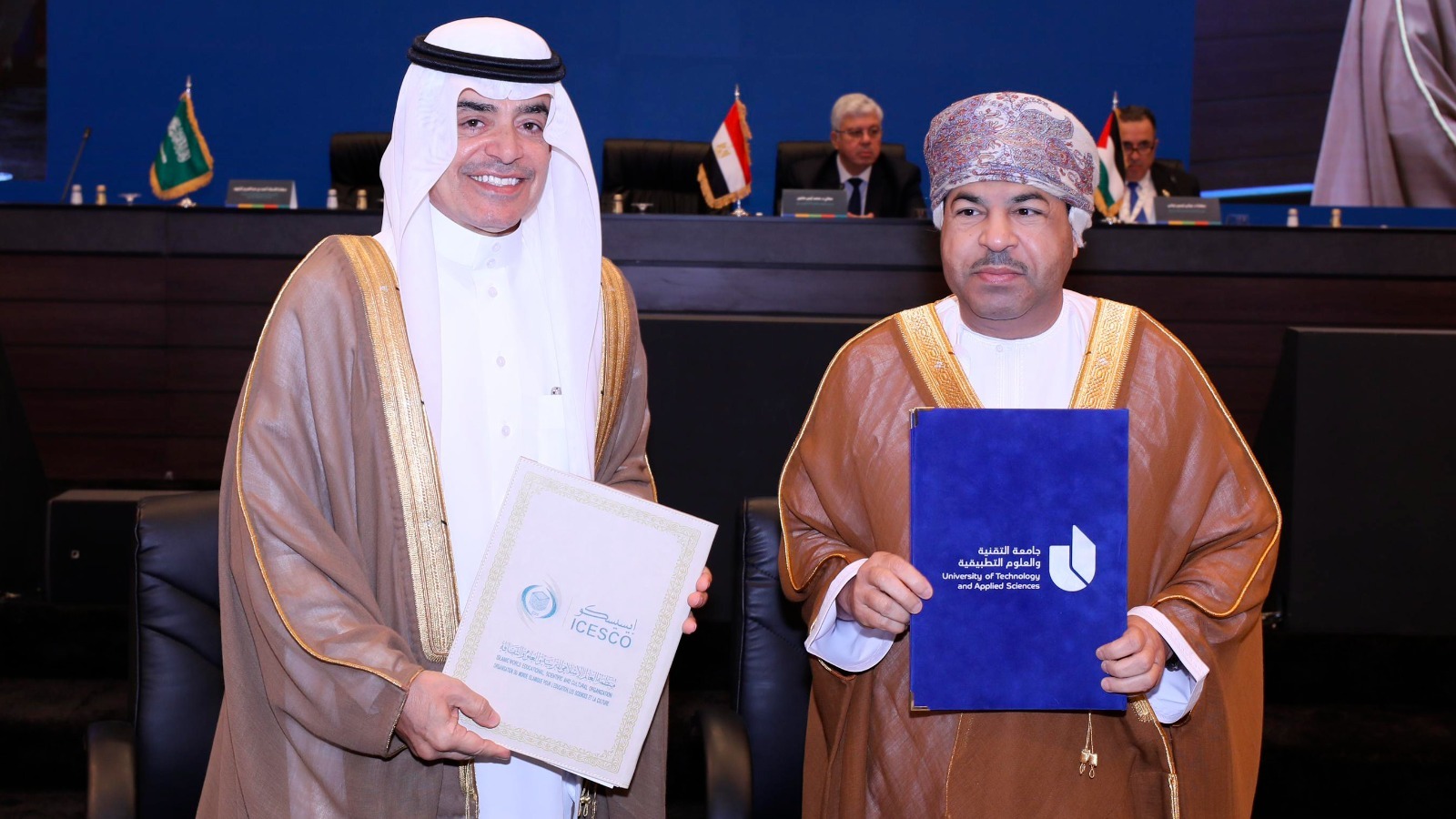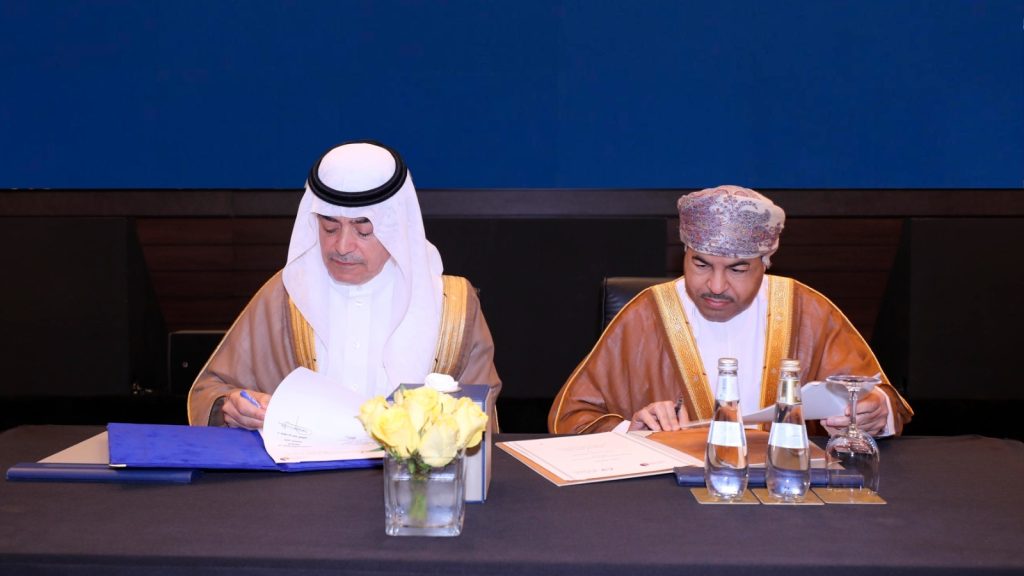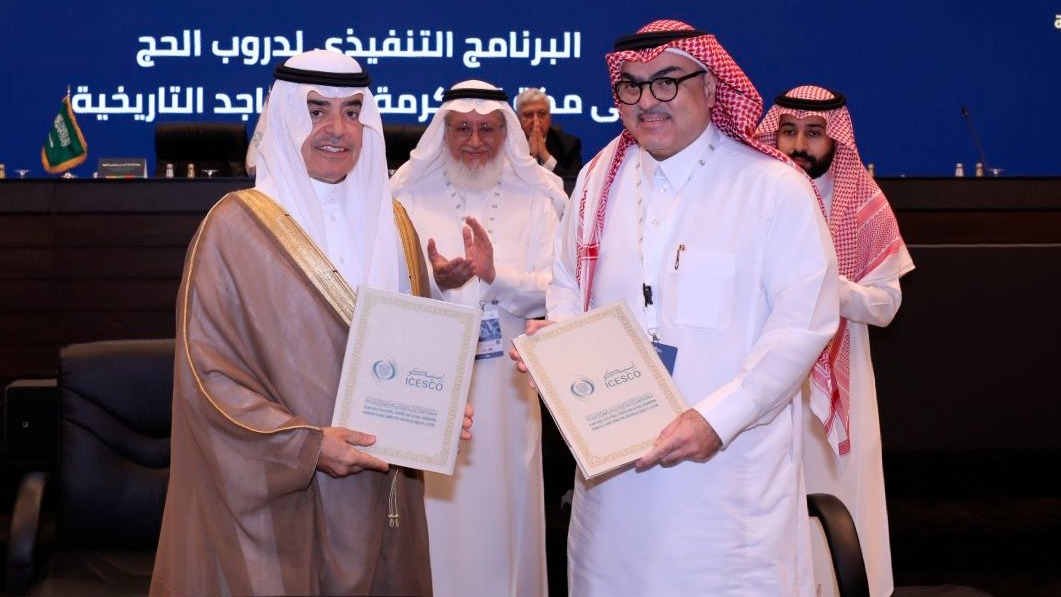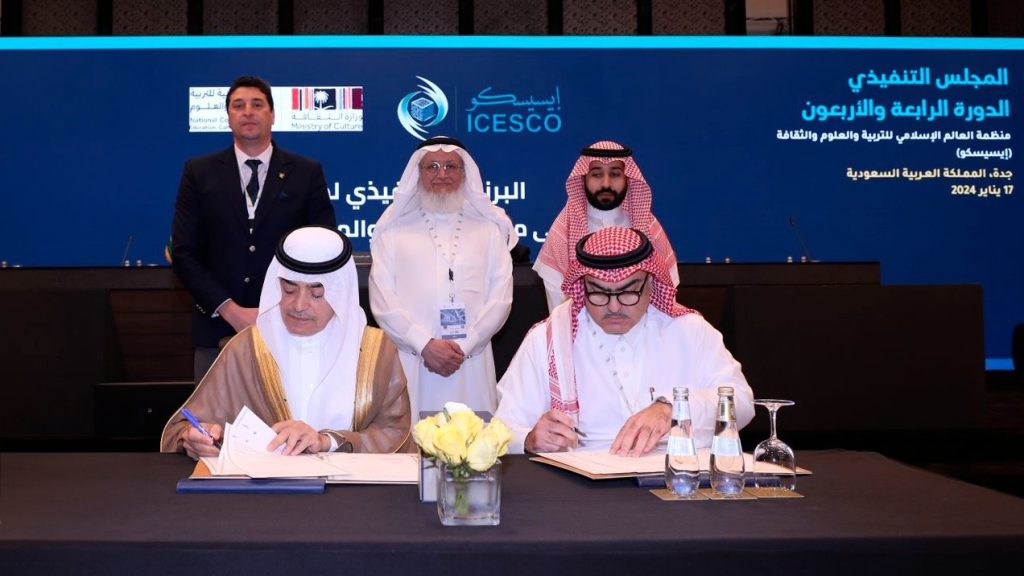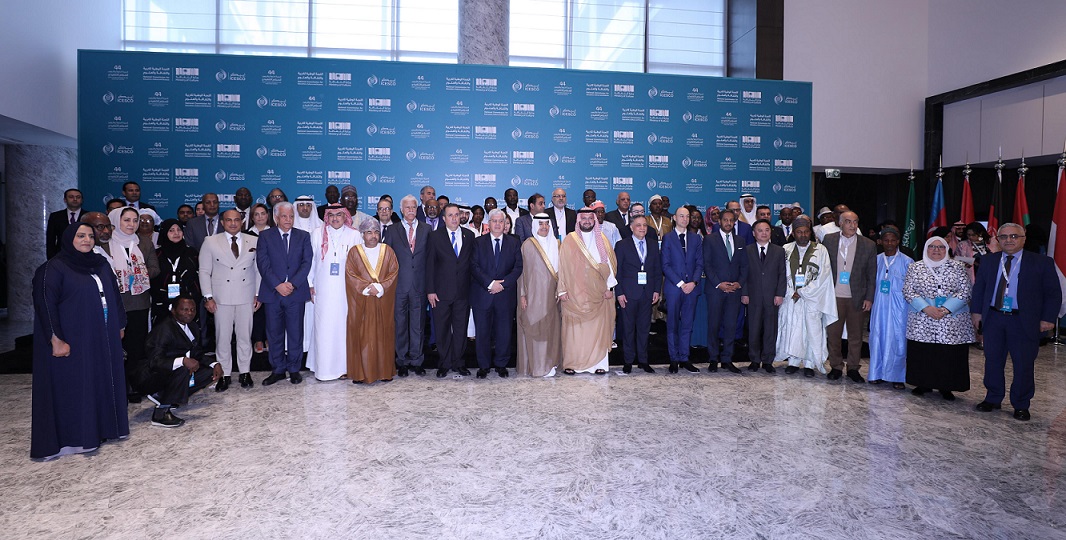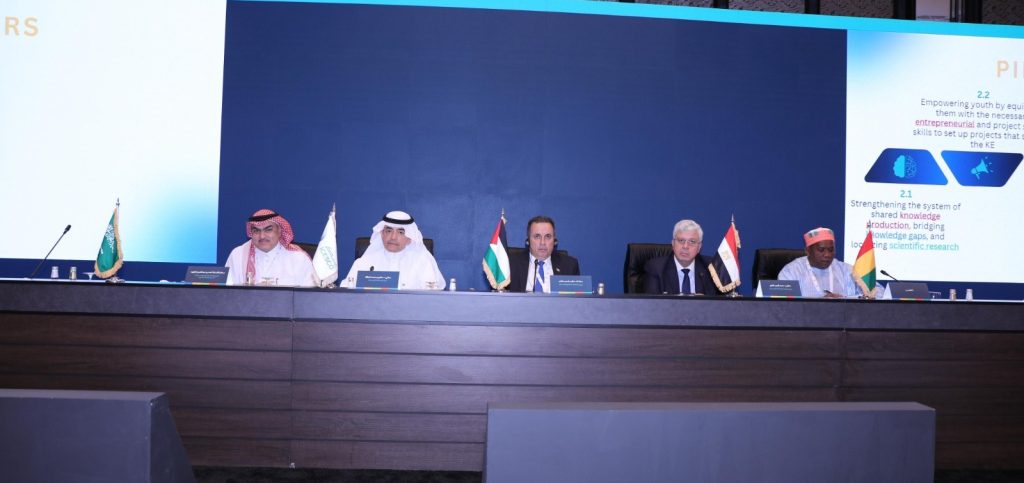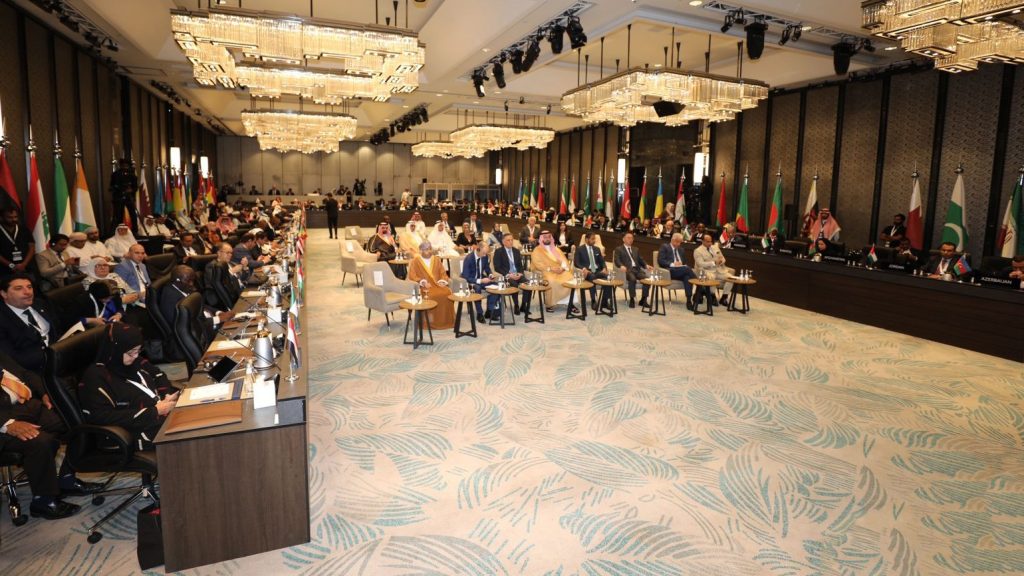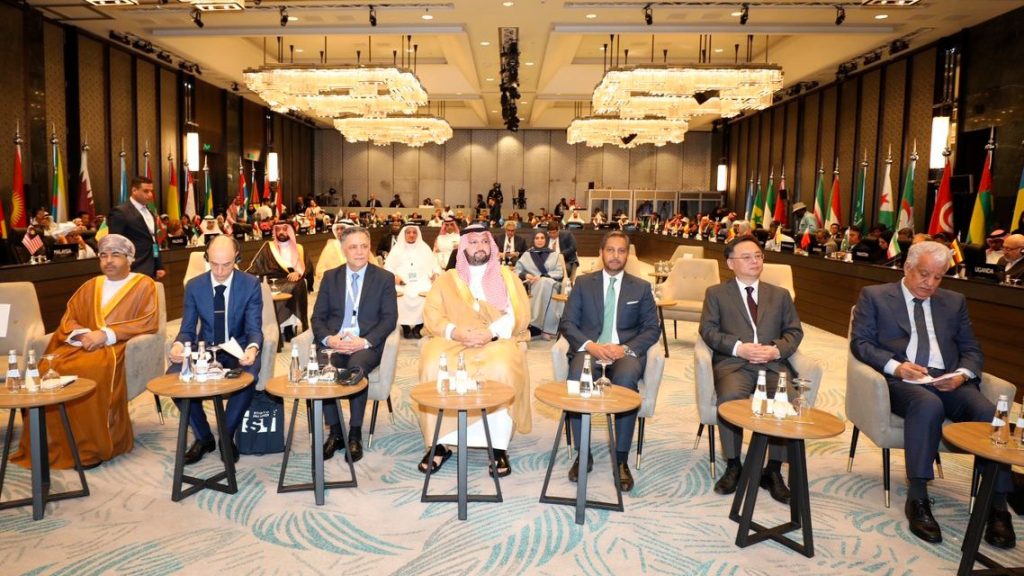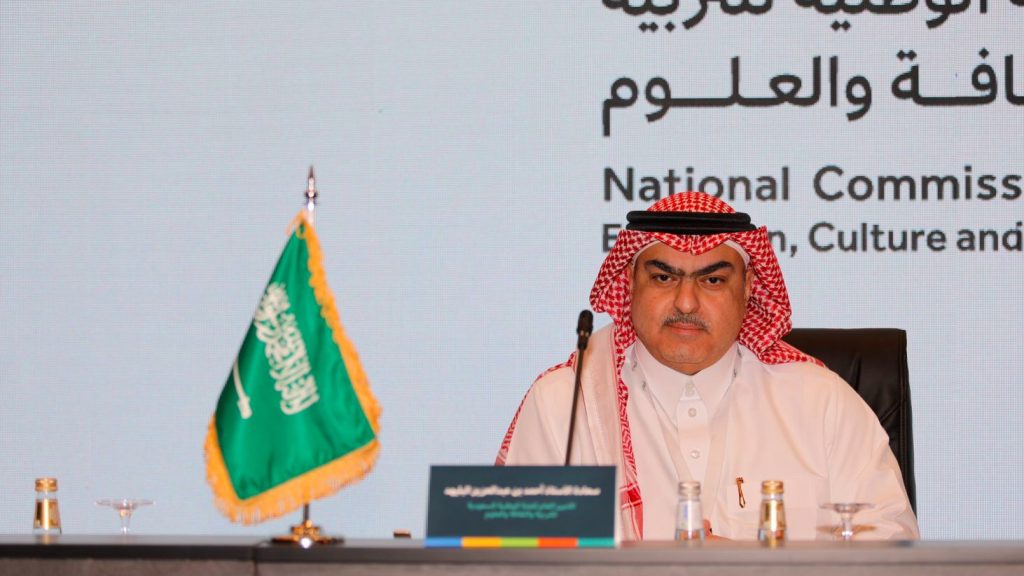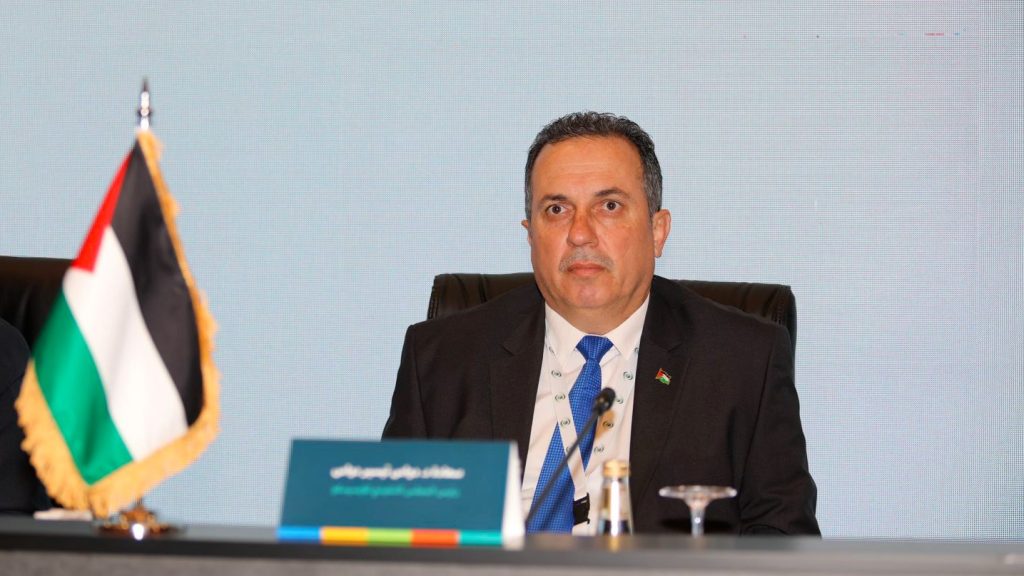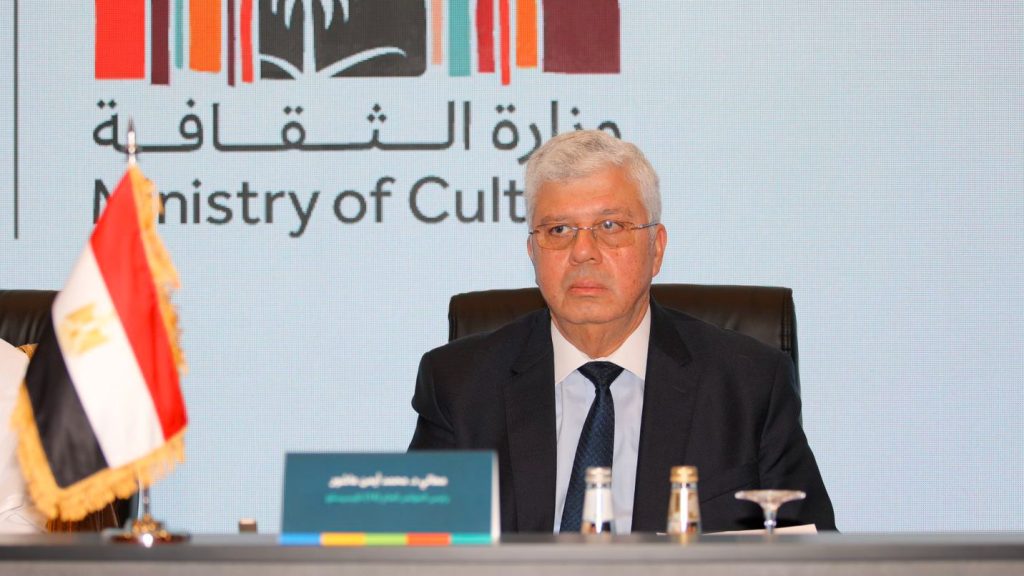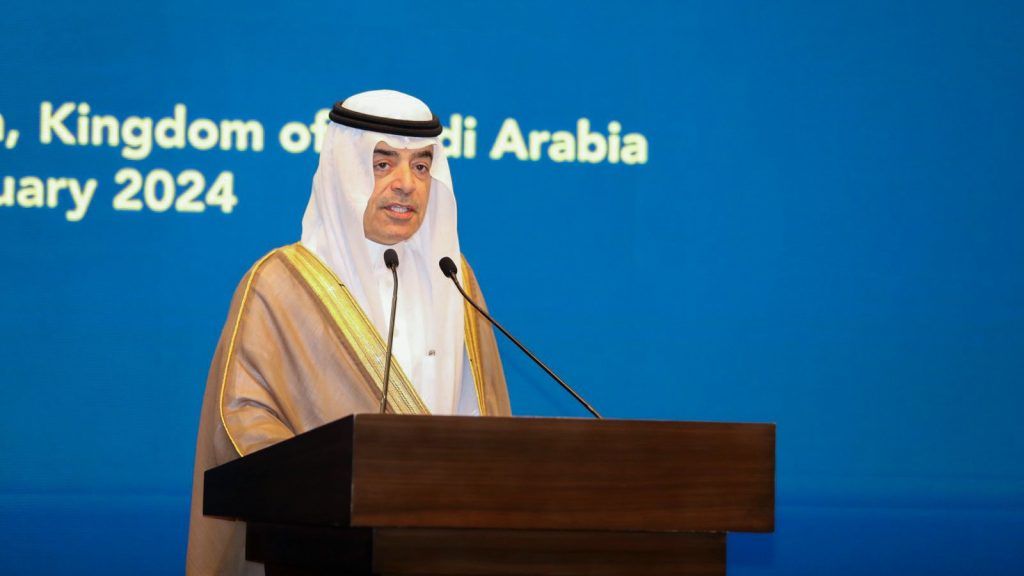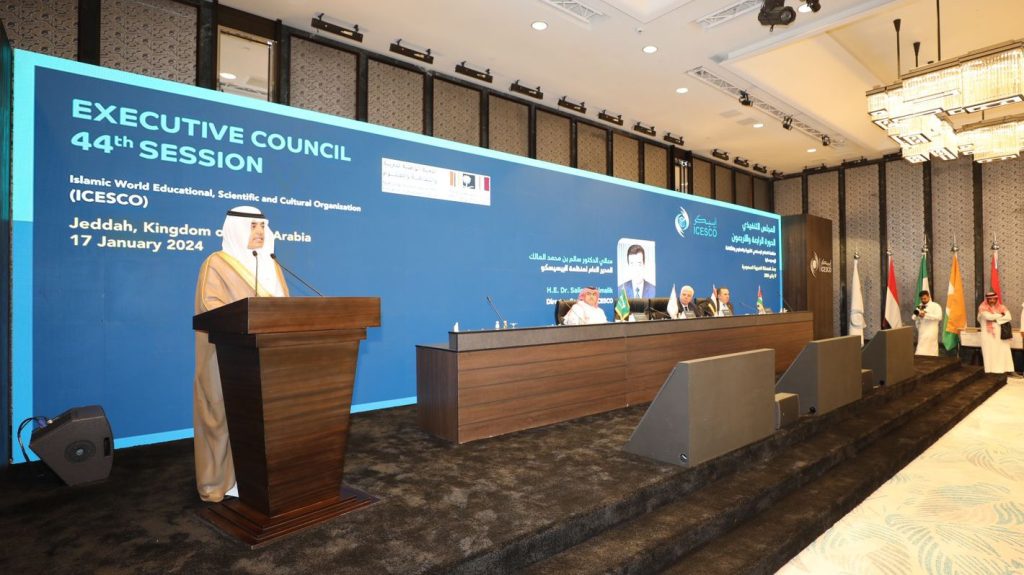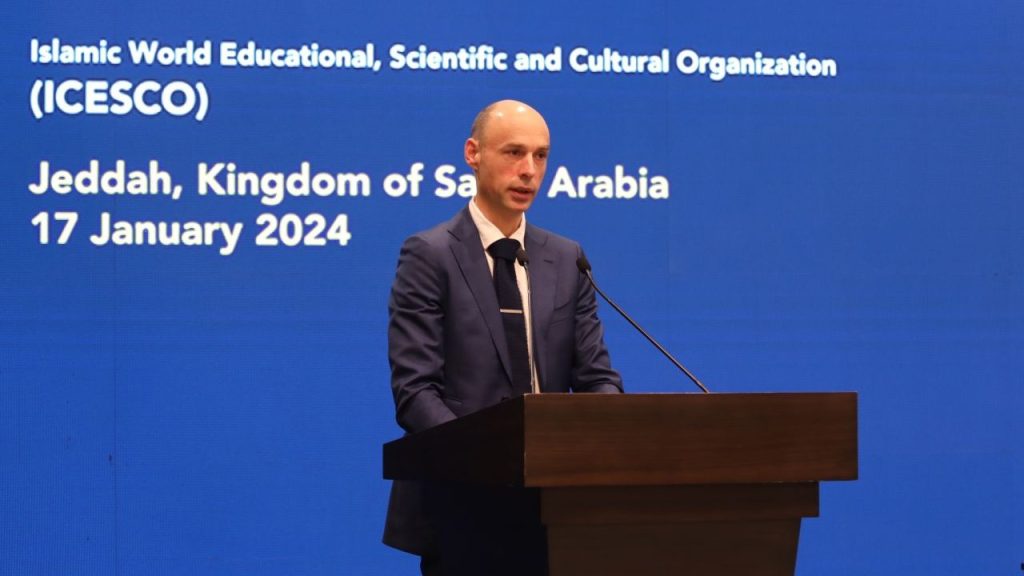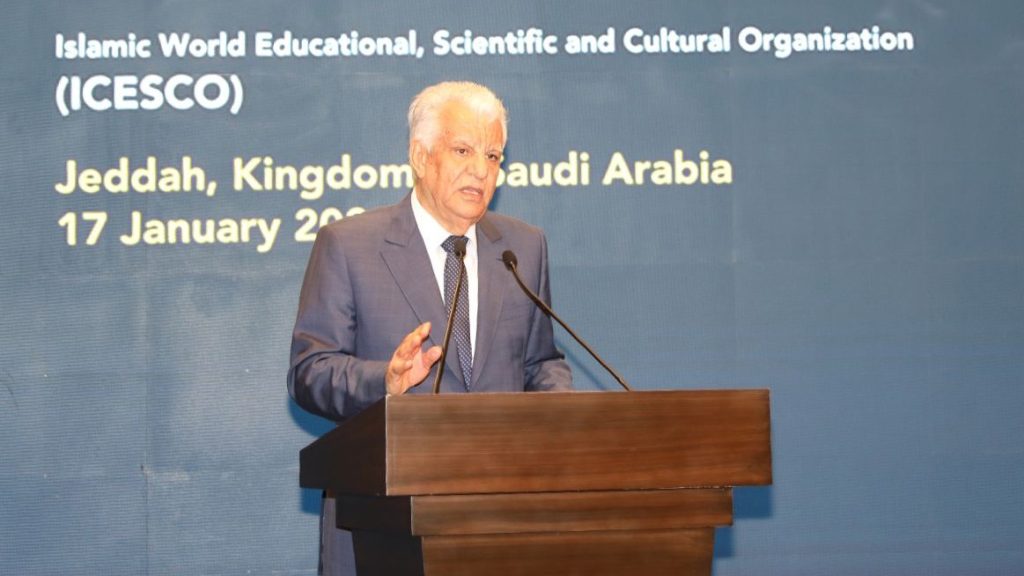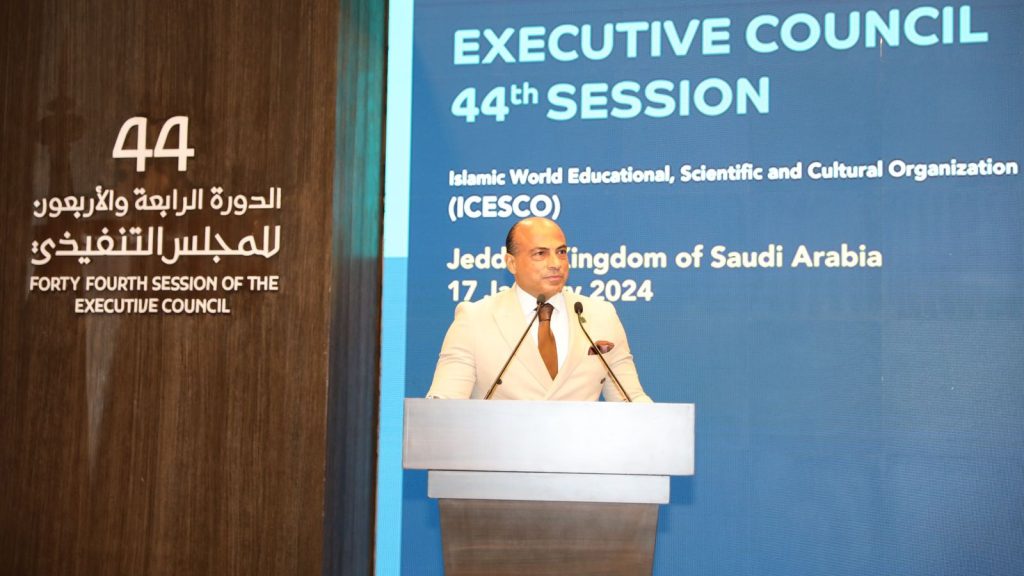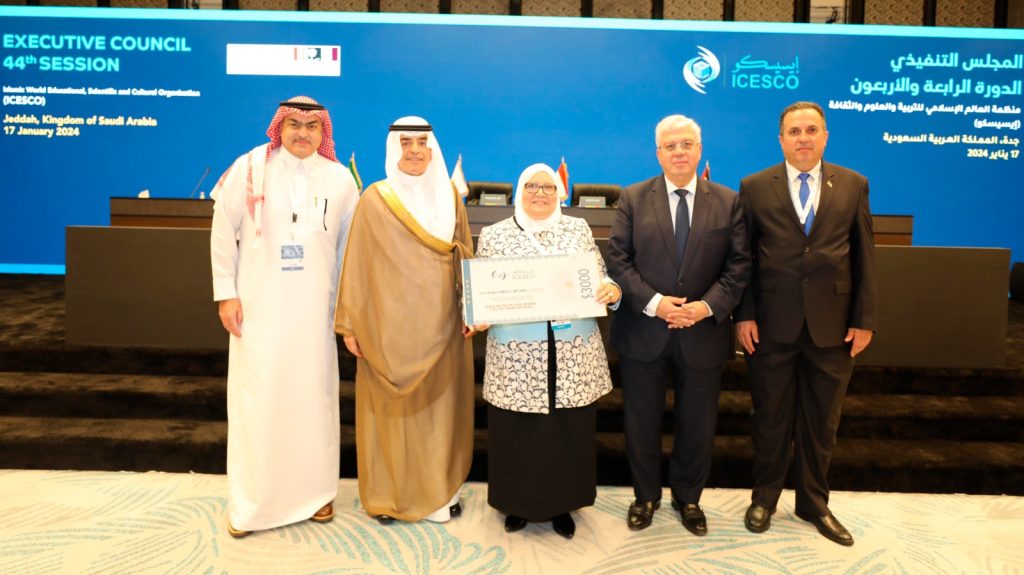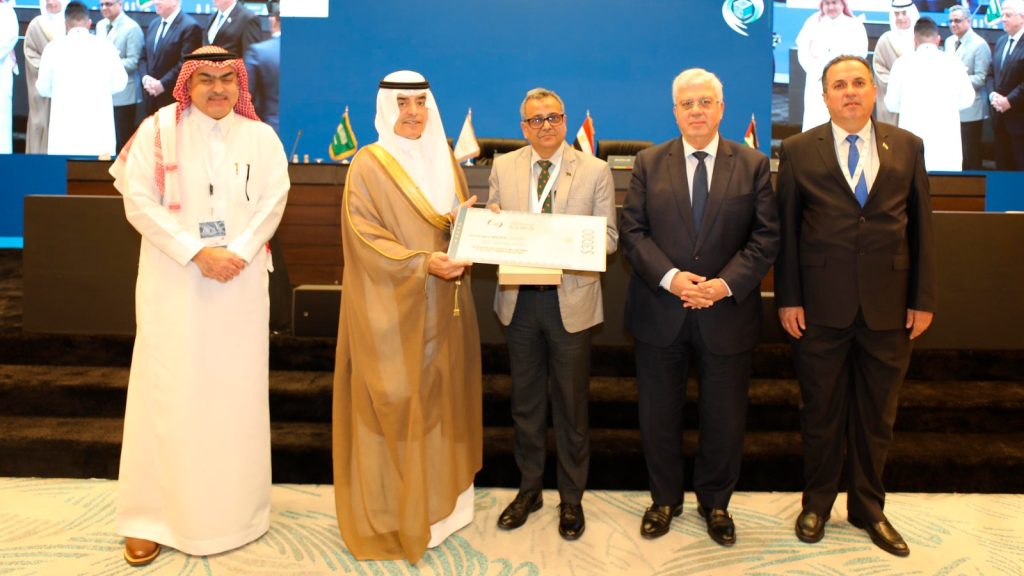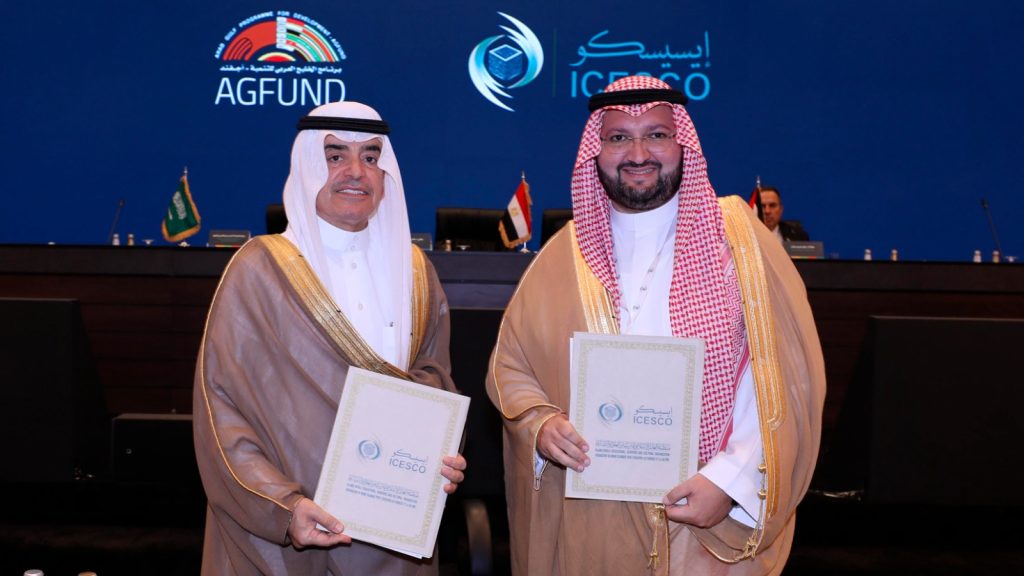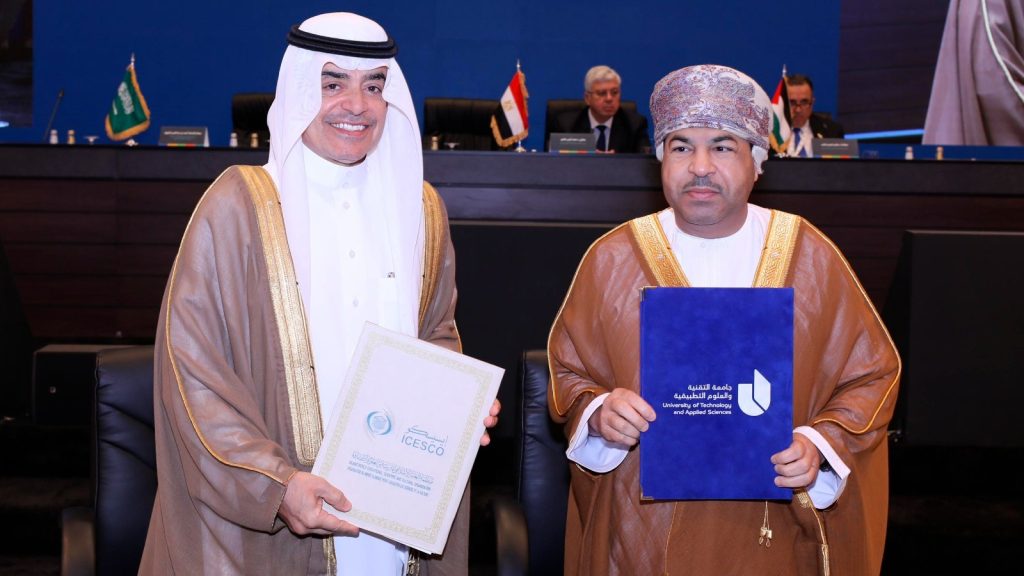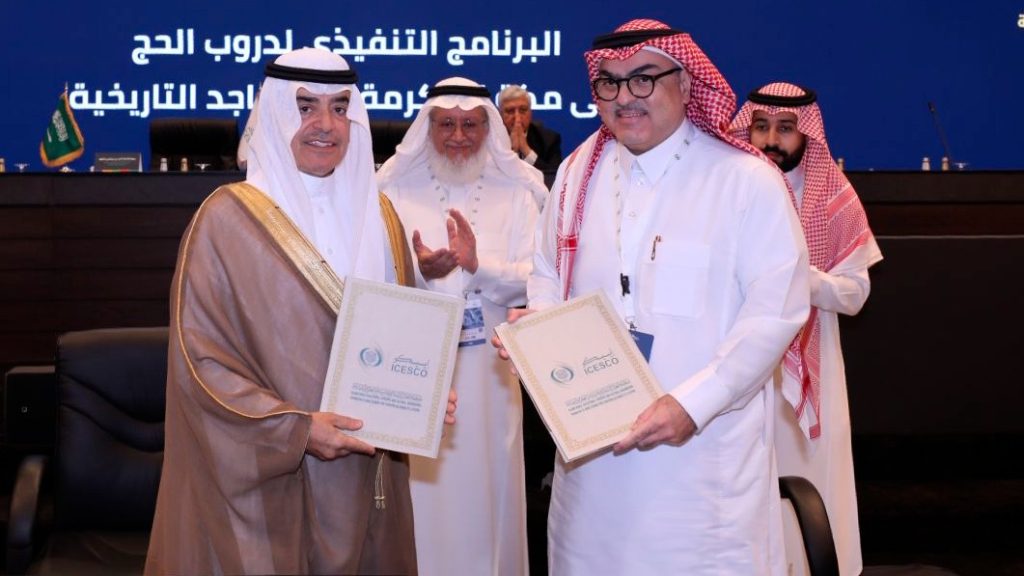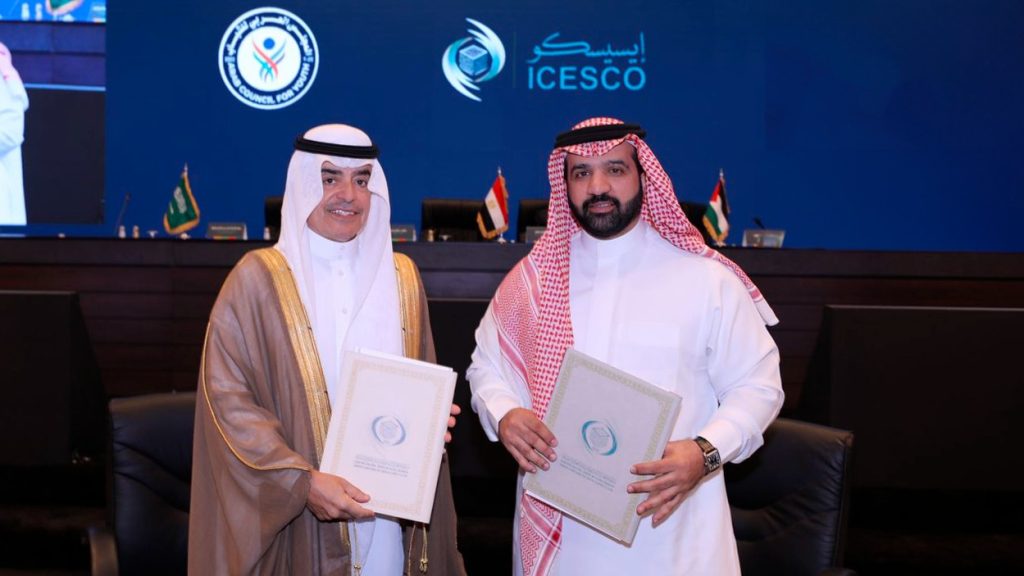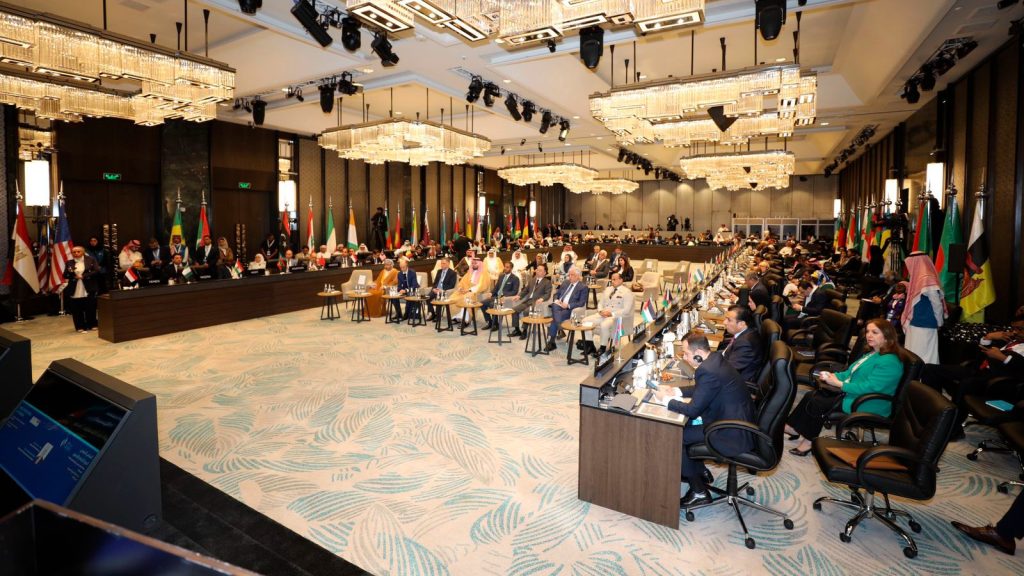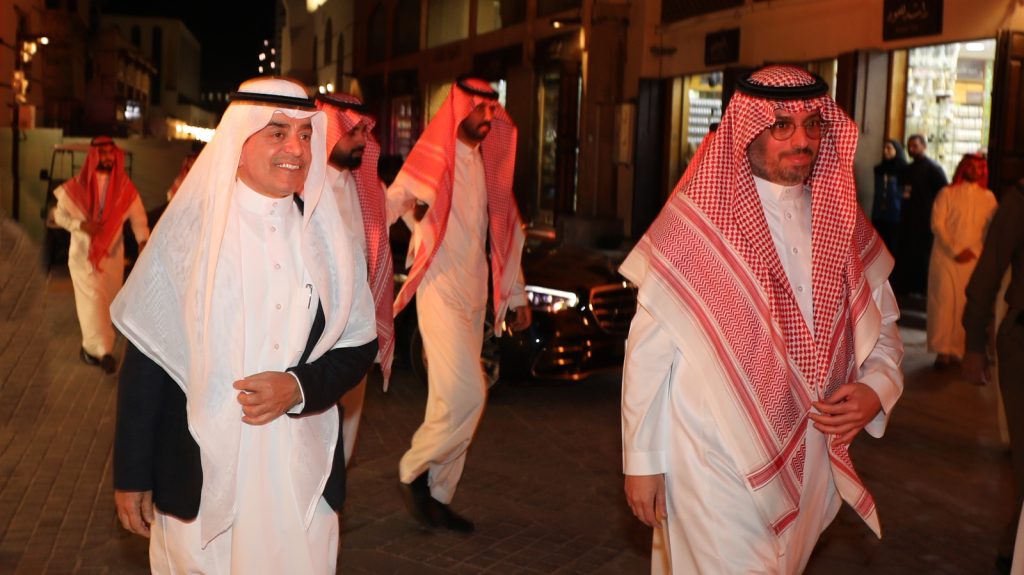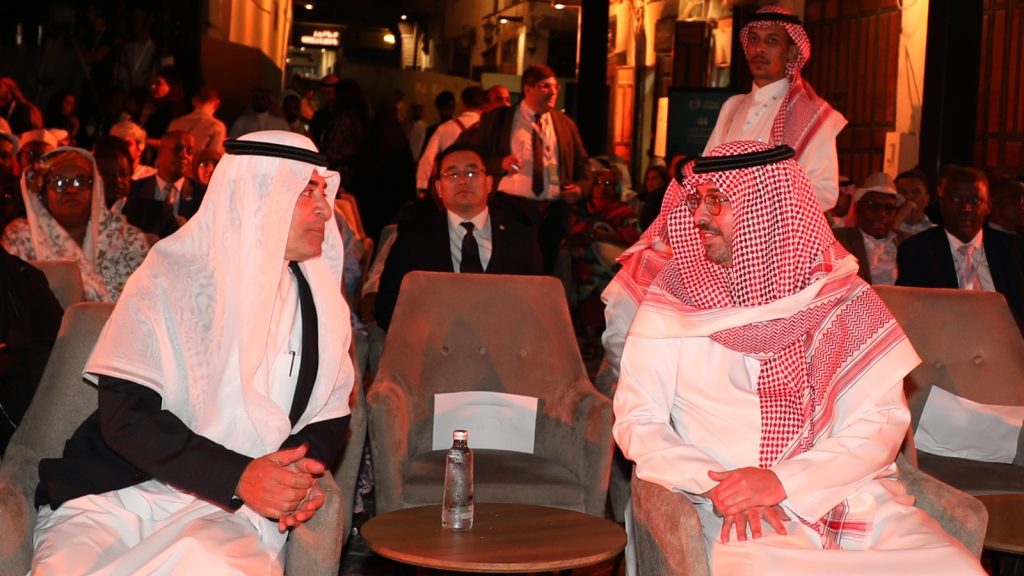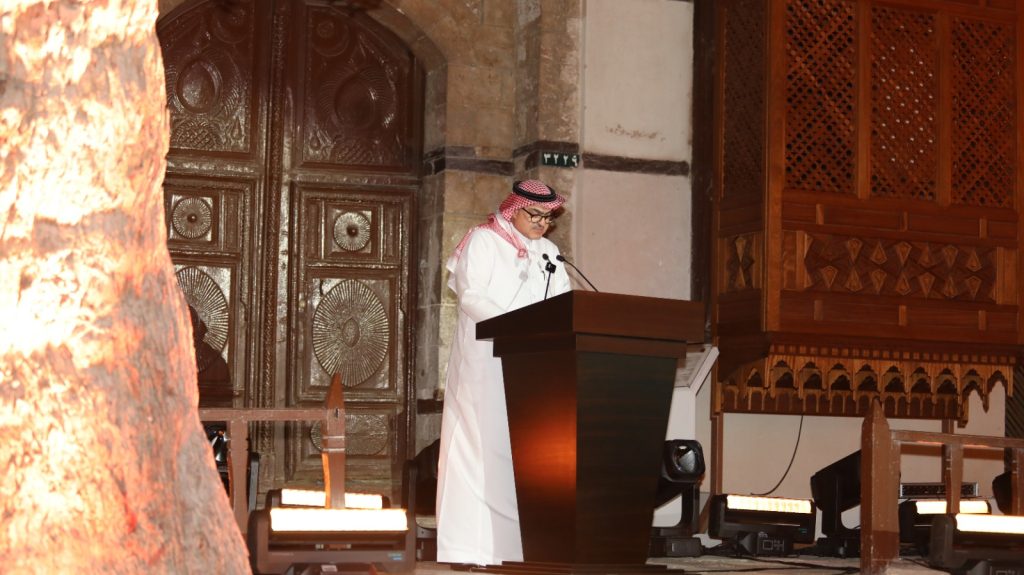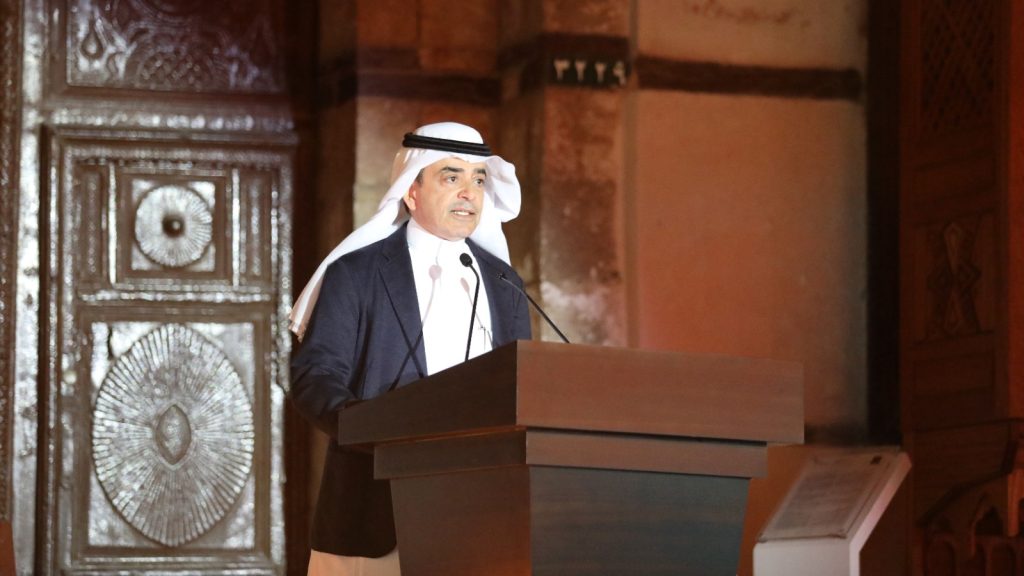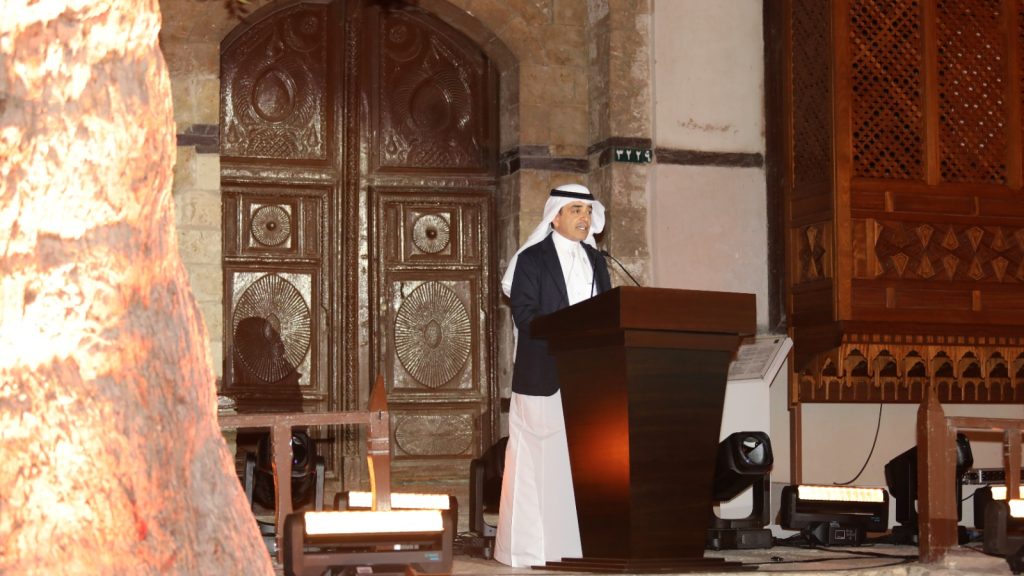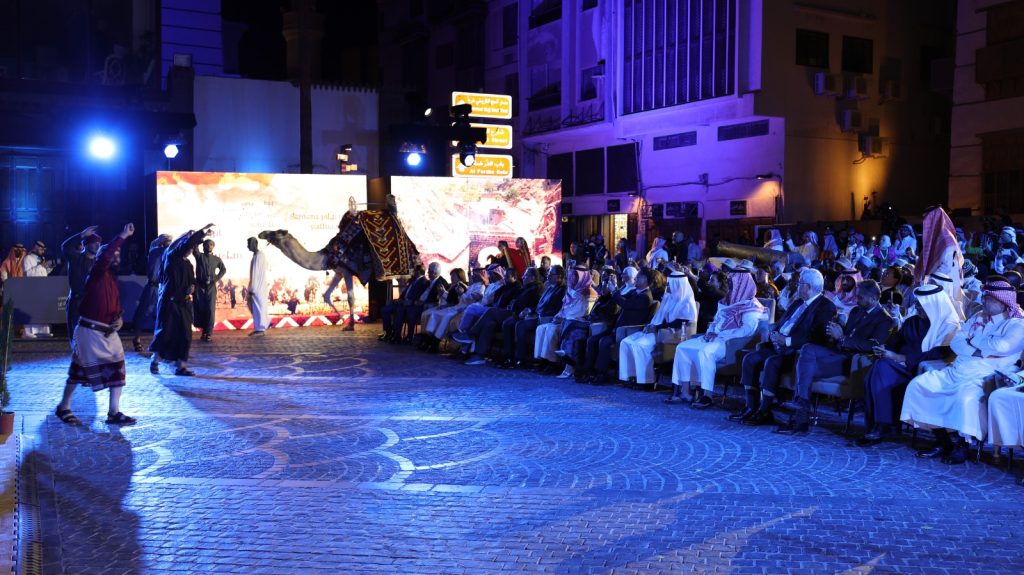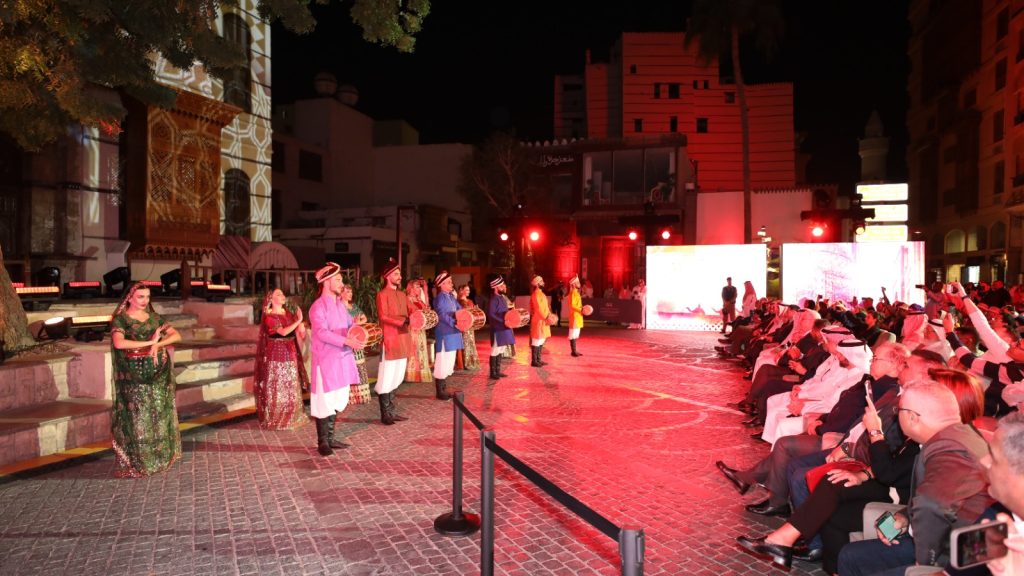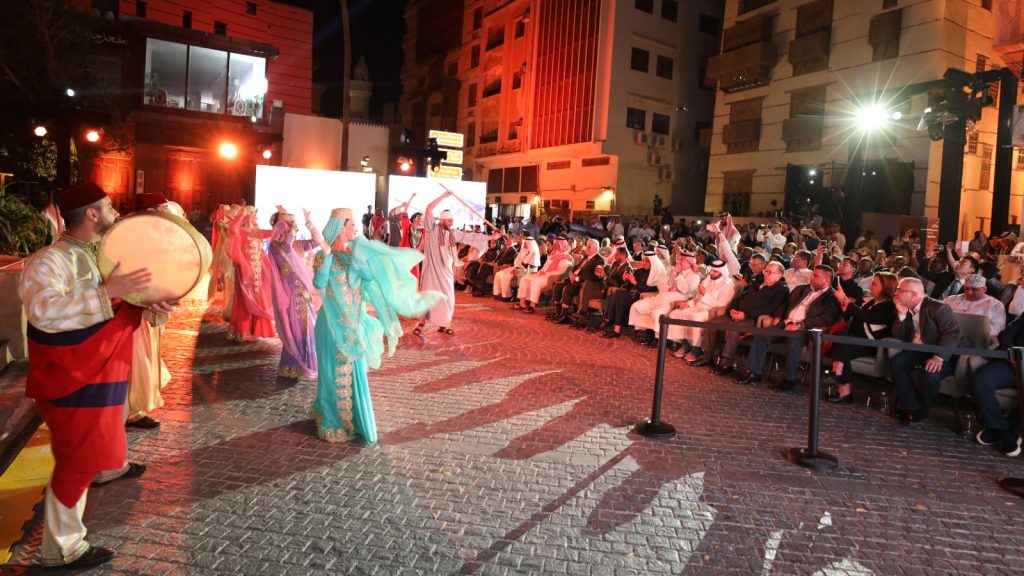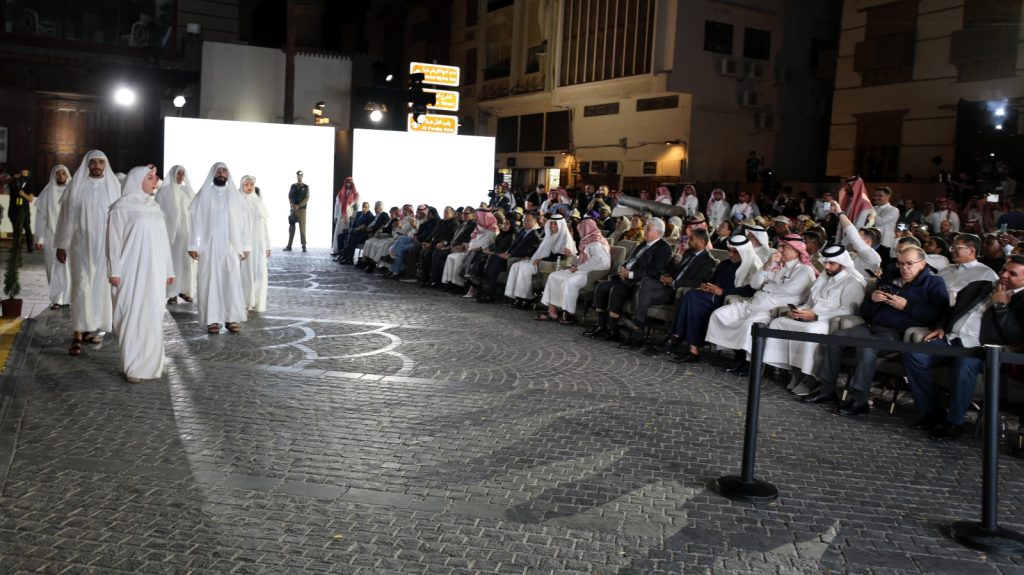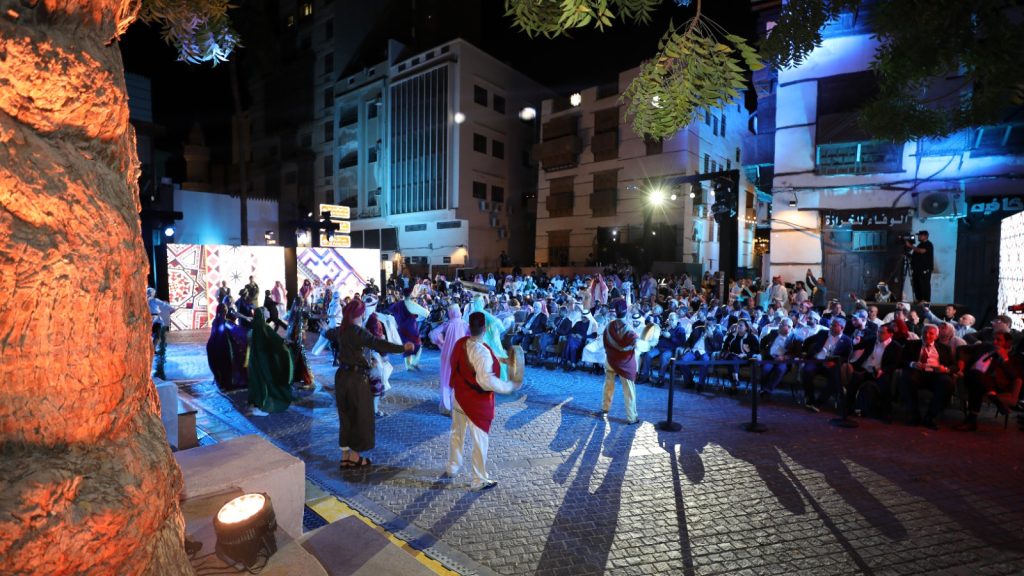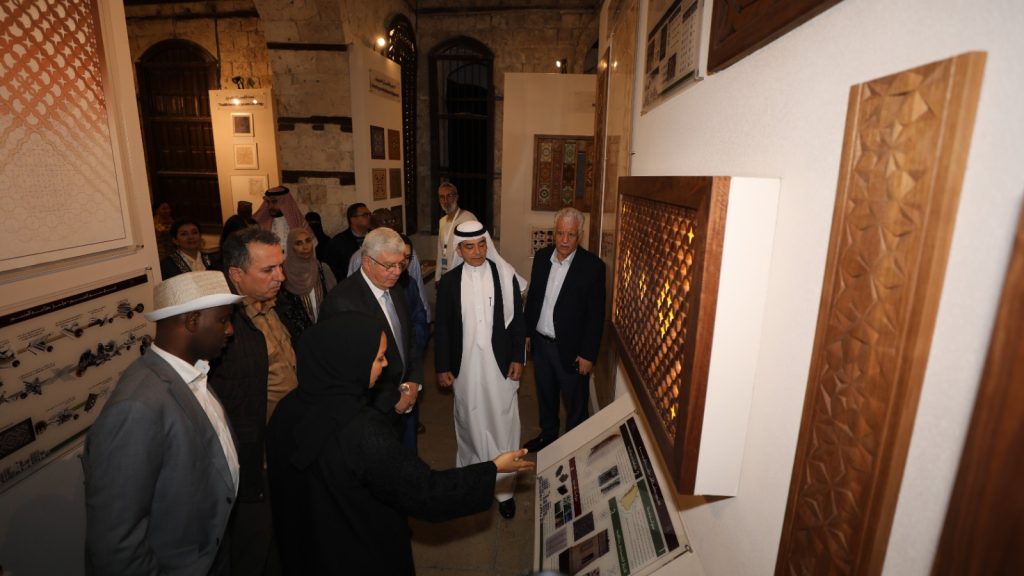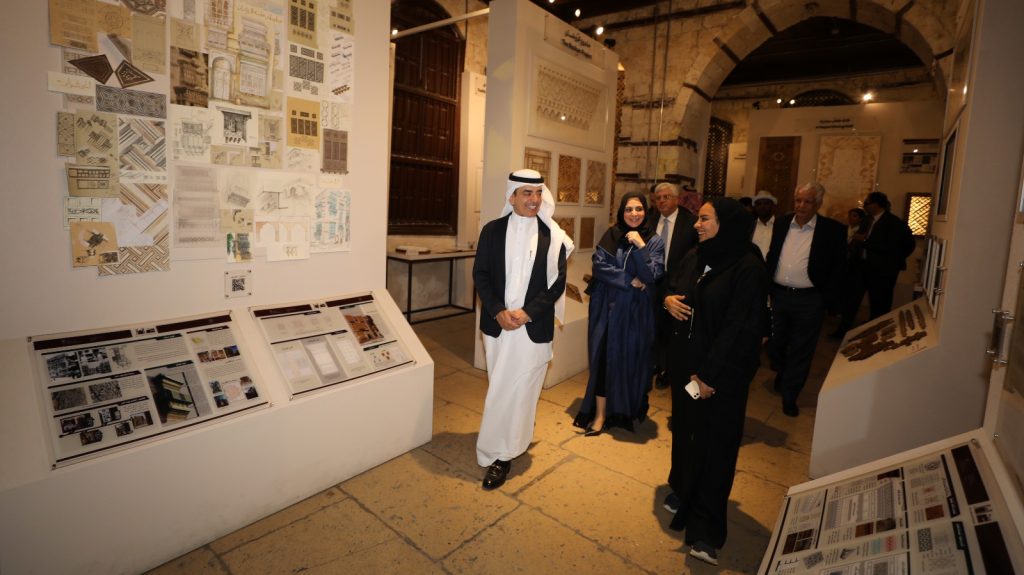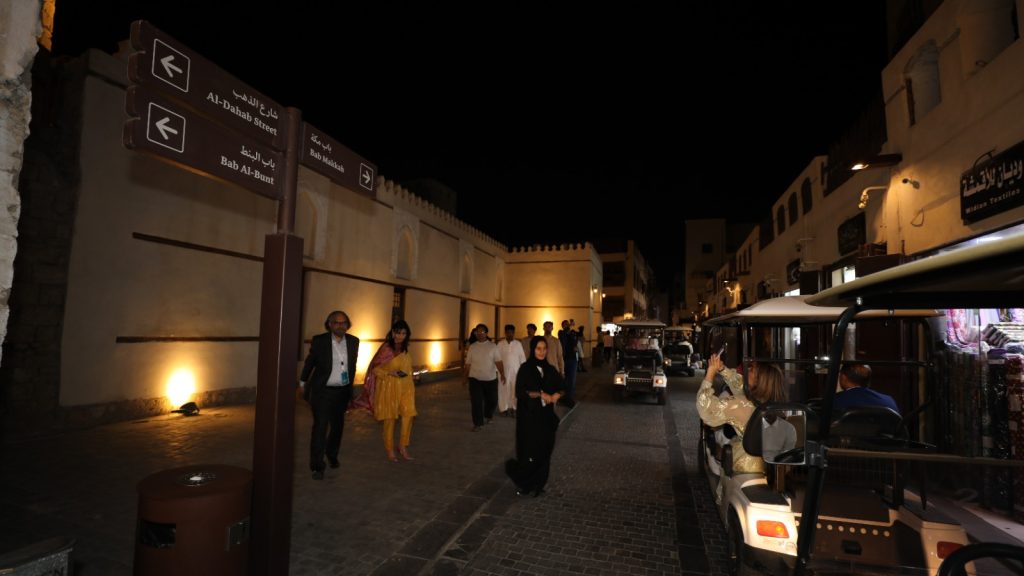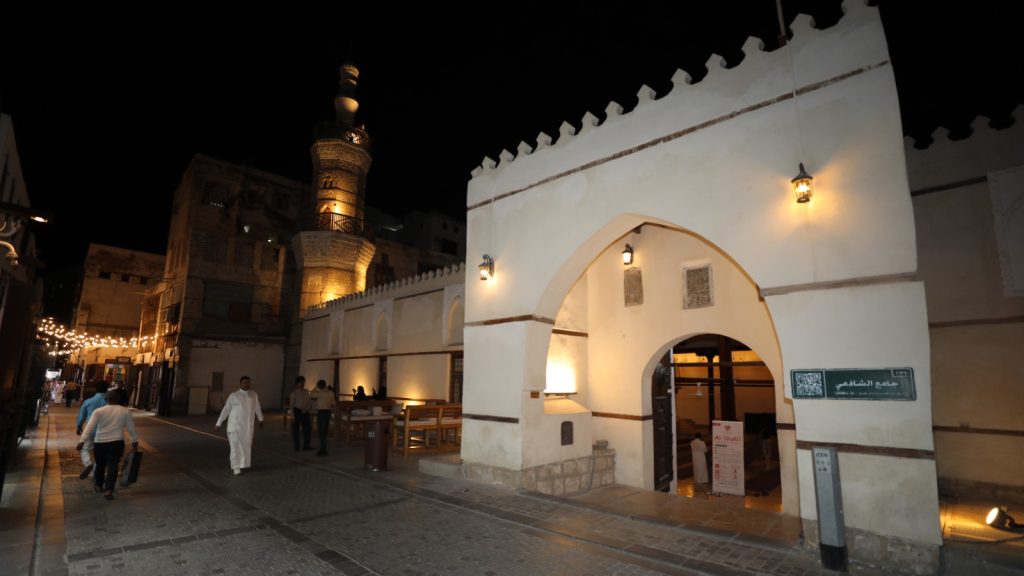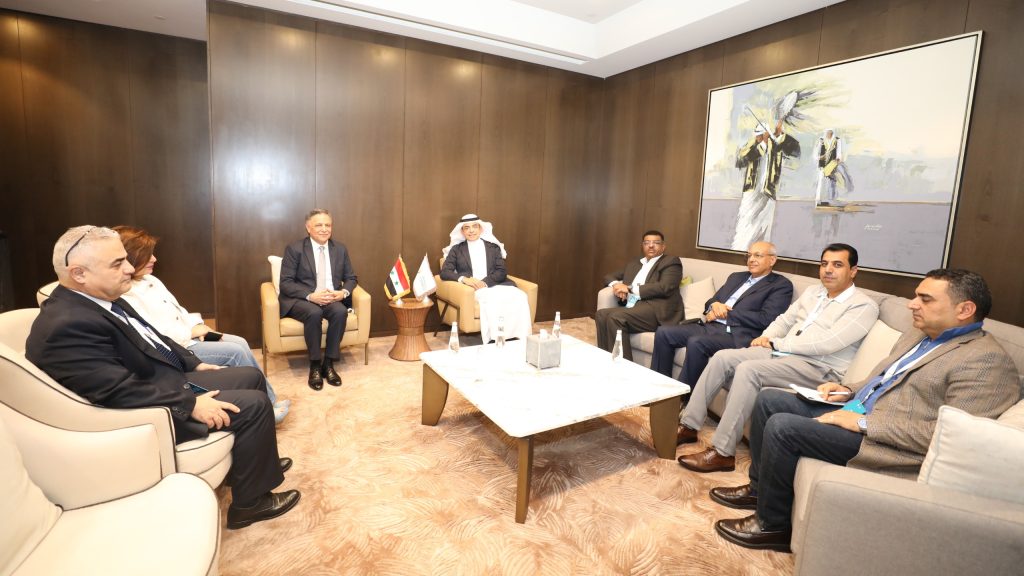The Islamic World Educational, Scientific and Cultural Organization (ICESCO) mourns the passing of the Royal Advisor, Dr. Abbes Jirari, the eminent scholar, noble thinker and dean of Moroccan literature, who passed away on Saturday, 20 January 2024, after an accomplished career full of achievements in the fields of academia, thought, culture, literature and humanitarian heritage.
Dr. Salim M. AlMalik, Director-General of ICESCO, for himself and on behalf of all the Organization’s staff, expresses sincere condolences to the family, the king, the government, and the people of the Kingdom of Morocco, beseeching Allah Almighty to bestow his mercy on the late intellectual and grant him the highest paradise.
At this sorrowful moment, ICESCO Director-General commended the great role the deceased fulfilled in enriching the Arab library with almost a hundred valuable works and solid studies in thought, culture and literature, mainly “Althqafa fi maʿrkat t-tghyir”, “thqafat l-sahrā’”, “Al’adab l-mghrbi mn khlal zwahirih wa qdaiah”, “Mʿjam mstlhat l-mlhun l-fniy” and “Alnagham l-motrib bin l-andalus wa lmgharib”, lauding the significance of the cultural club hosted in the house of the late, which was founded by his father, the scholar and writer Abdallah Jirari, and continued for over 90 years.
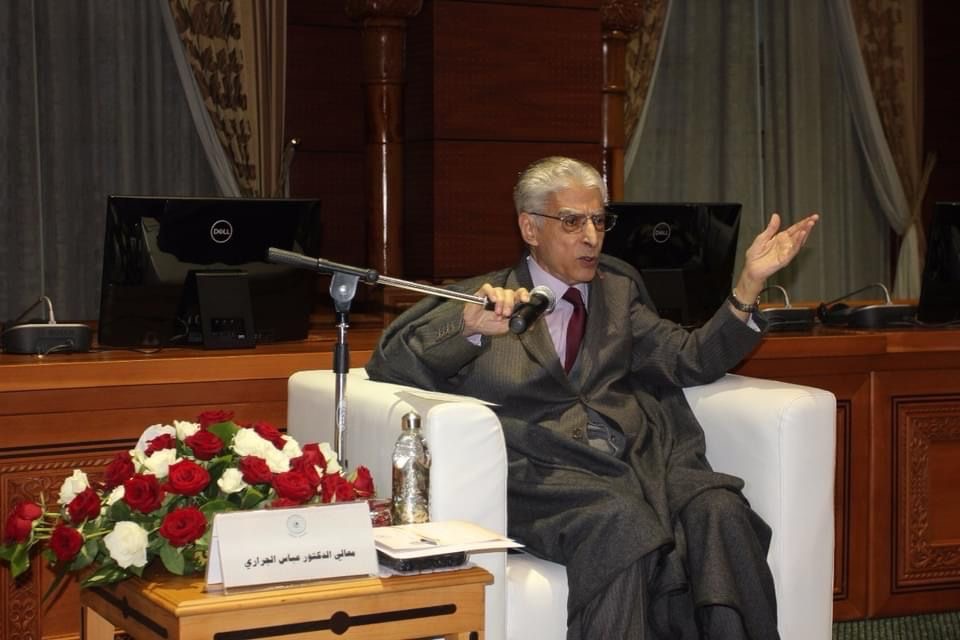
Dr. AlMalik appreciated Dr. Jirari’s admiration for ICESCO’s efforts and his interest in following up with the Organization’s progress over the past four years, including its initiatives and programs, which he expressed during his visit to the International Exhibition and Museum of the Prophet’s Seerah and Islamic Civilization, currently housed at ICESCO Headquarters.
Moreover, Dr. AlMalik underlined the keenness of the Organization’s General Directorate to celebrate Dr. Jirari and impart his thought and wealth of knowledge to future generations as Dr. Jirari was the guest at the first edition of ICESCO Cultural Forum, on October 22, 2019, and lectured on the “Future Cultural Challenges in the Islamic World,” which was issued later by ICESCO in a book bearing the same title, making it the first edition in the series of Cultural Forum Encounters.
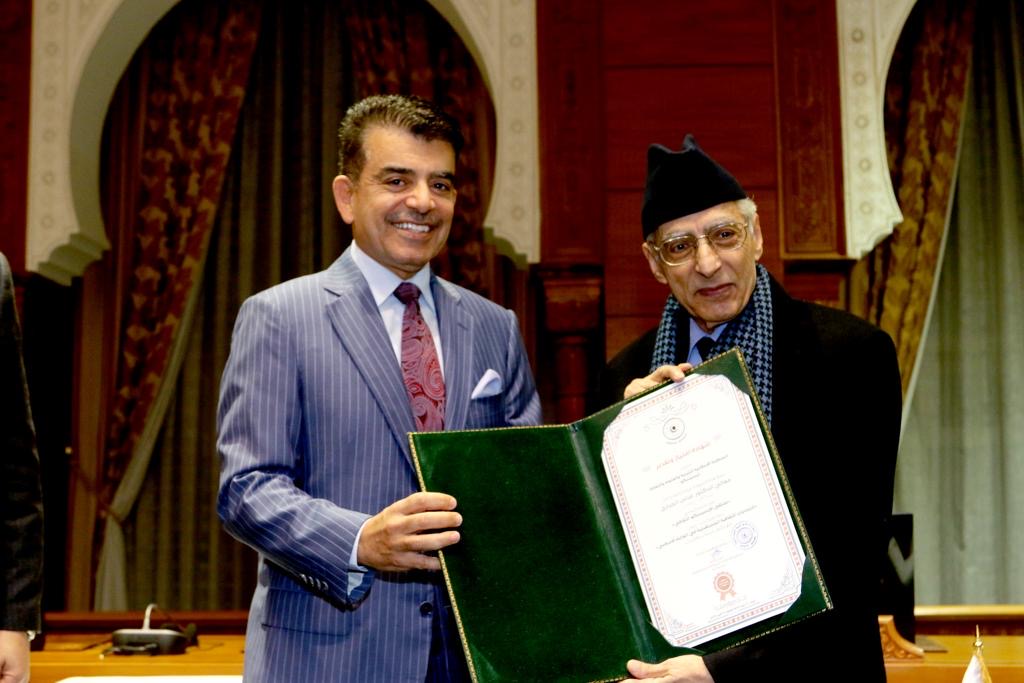
It is noteworthy that on December 10, 2019, Dr. AlMalik presented a certificate of appreciation and the Organization’s honorary shield to Dr. El Jirari for his remarkable contributions to enriching Arabic literature.

